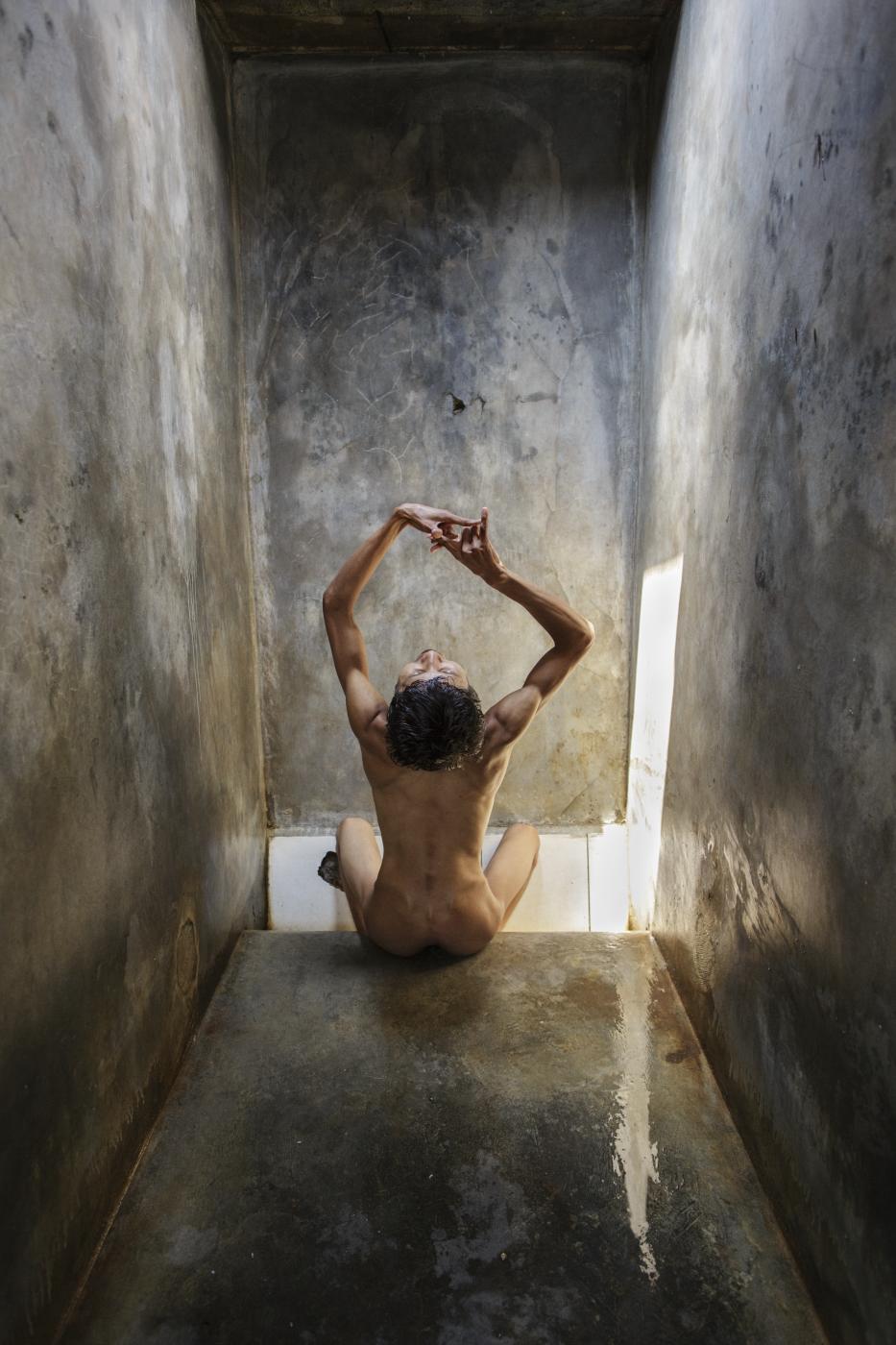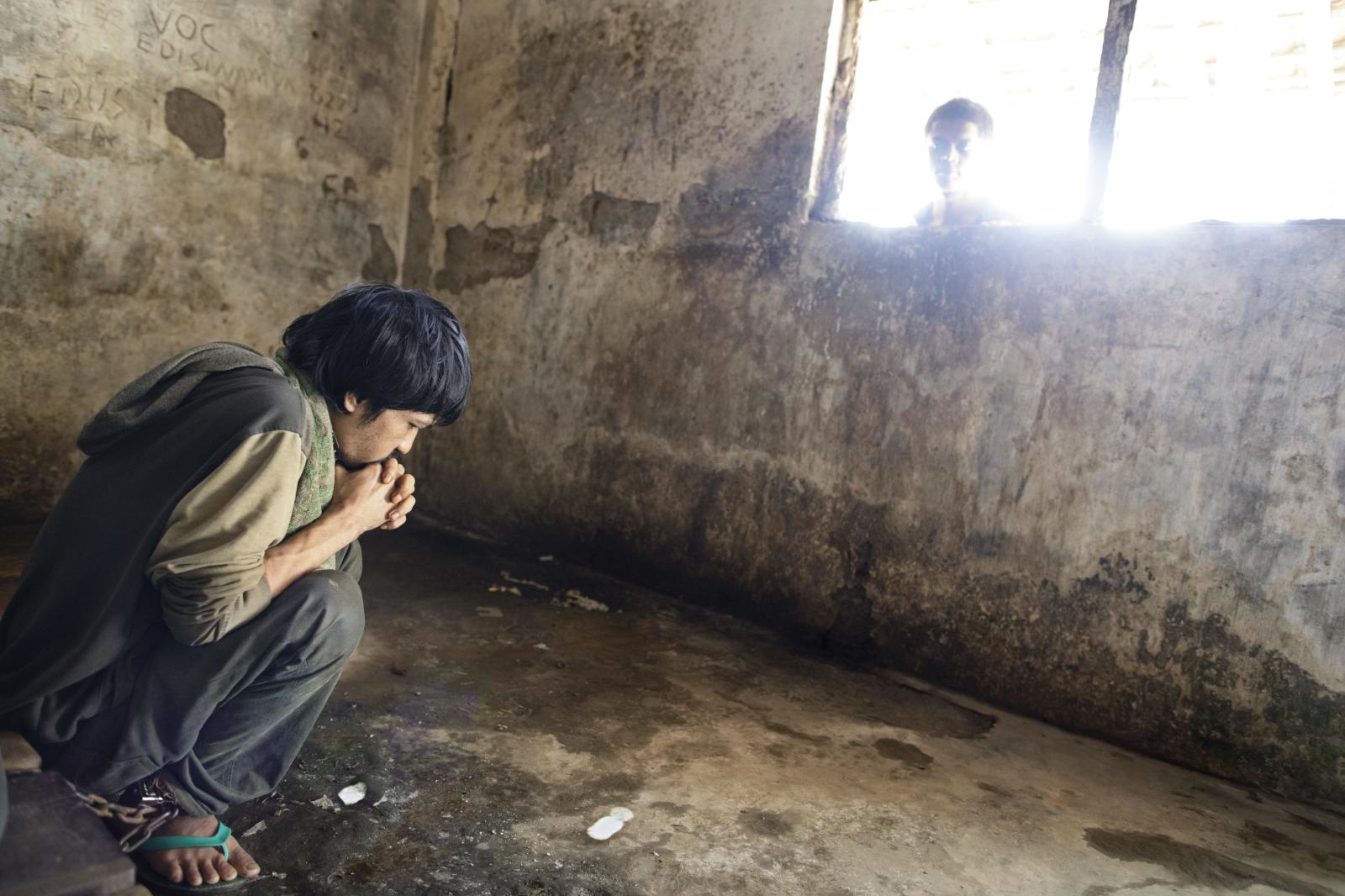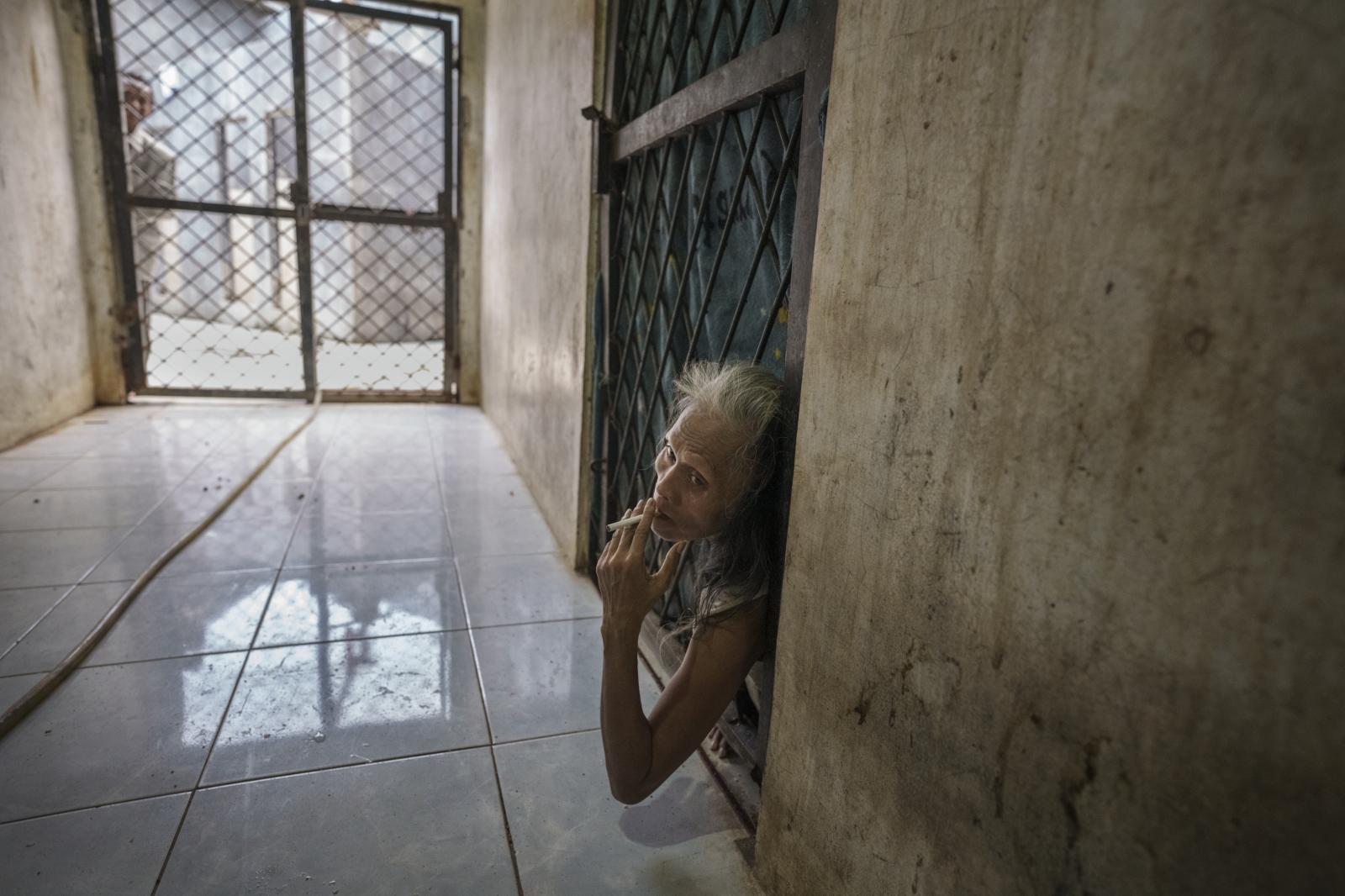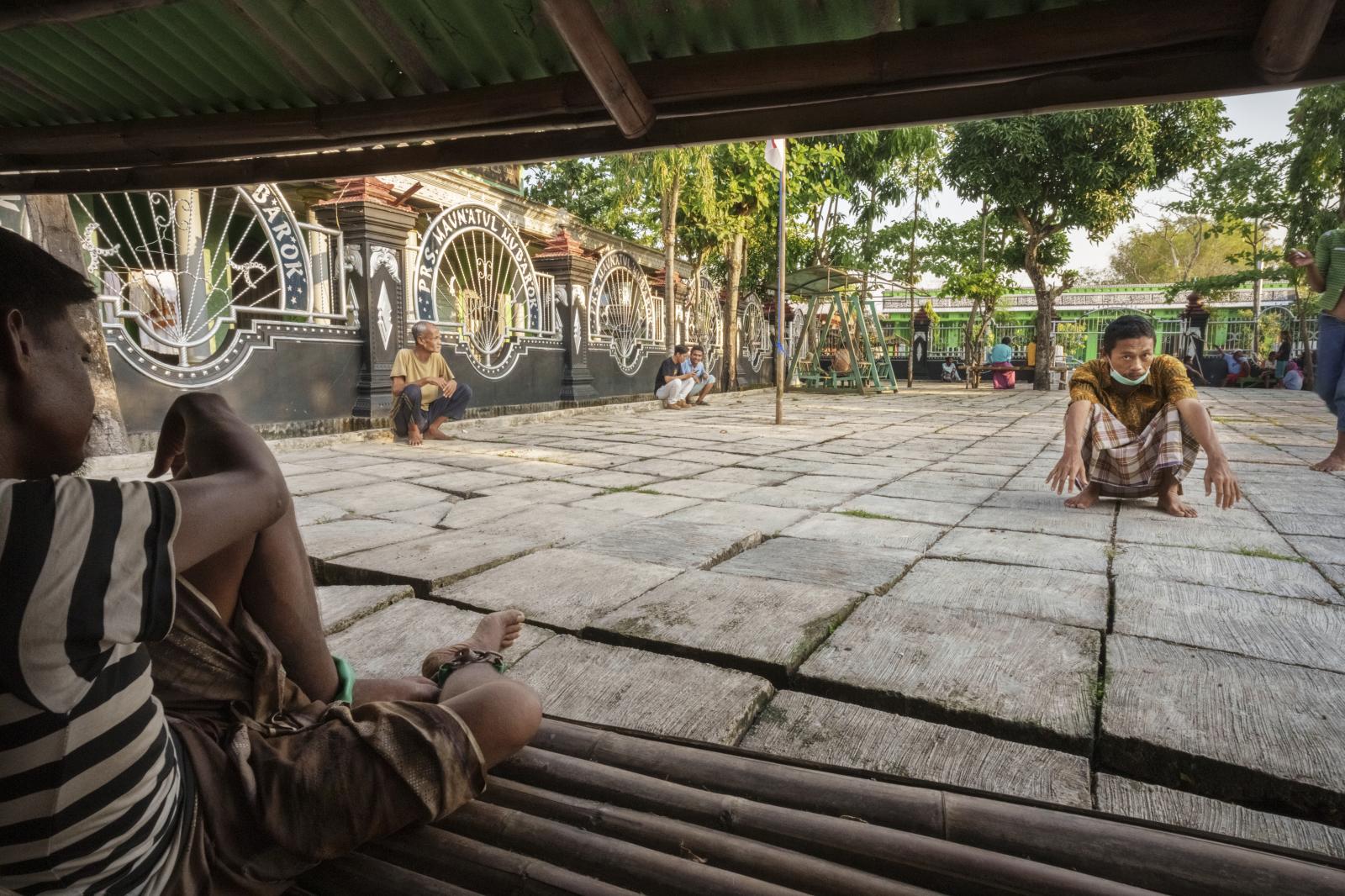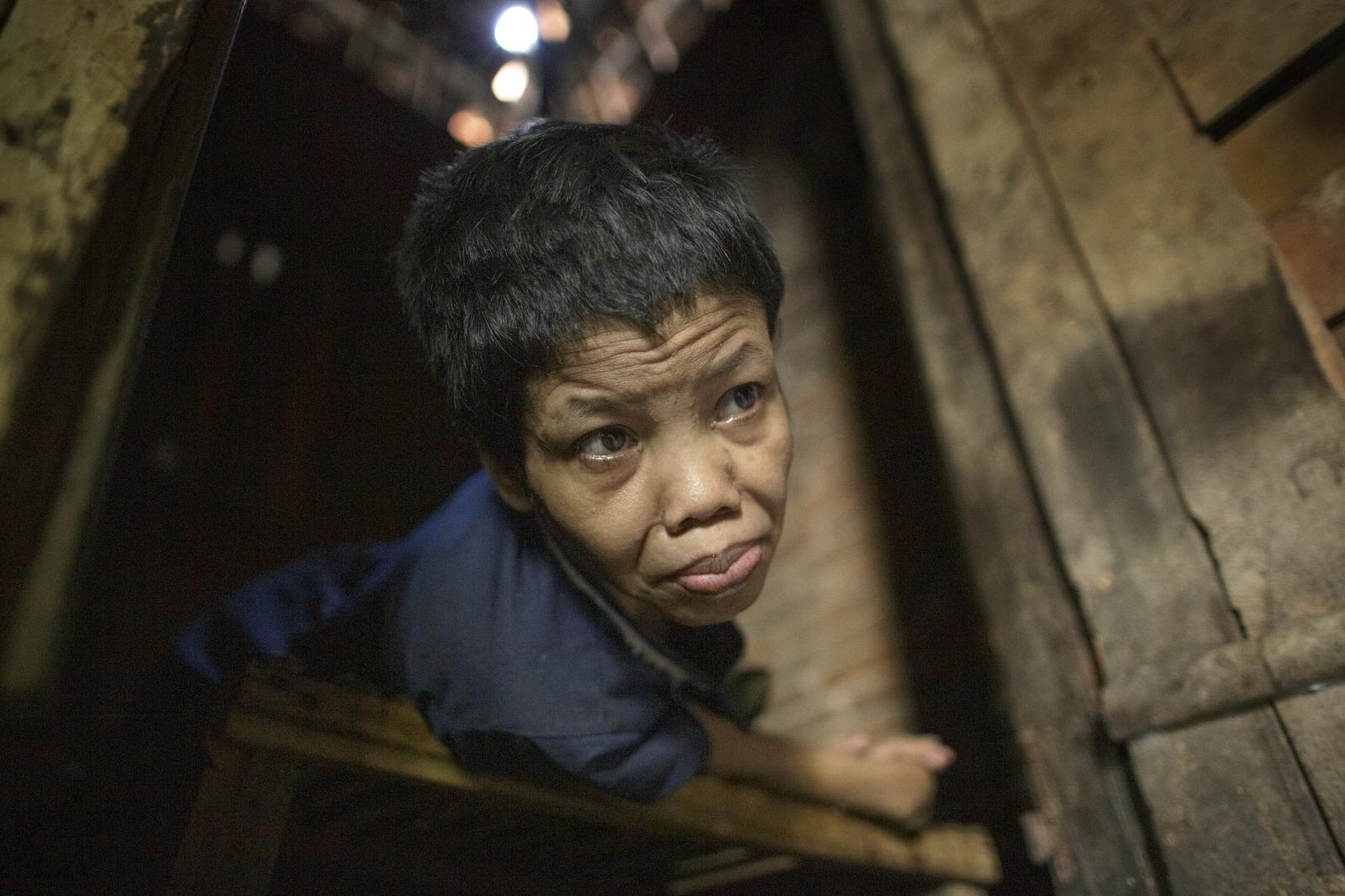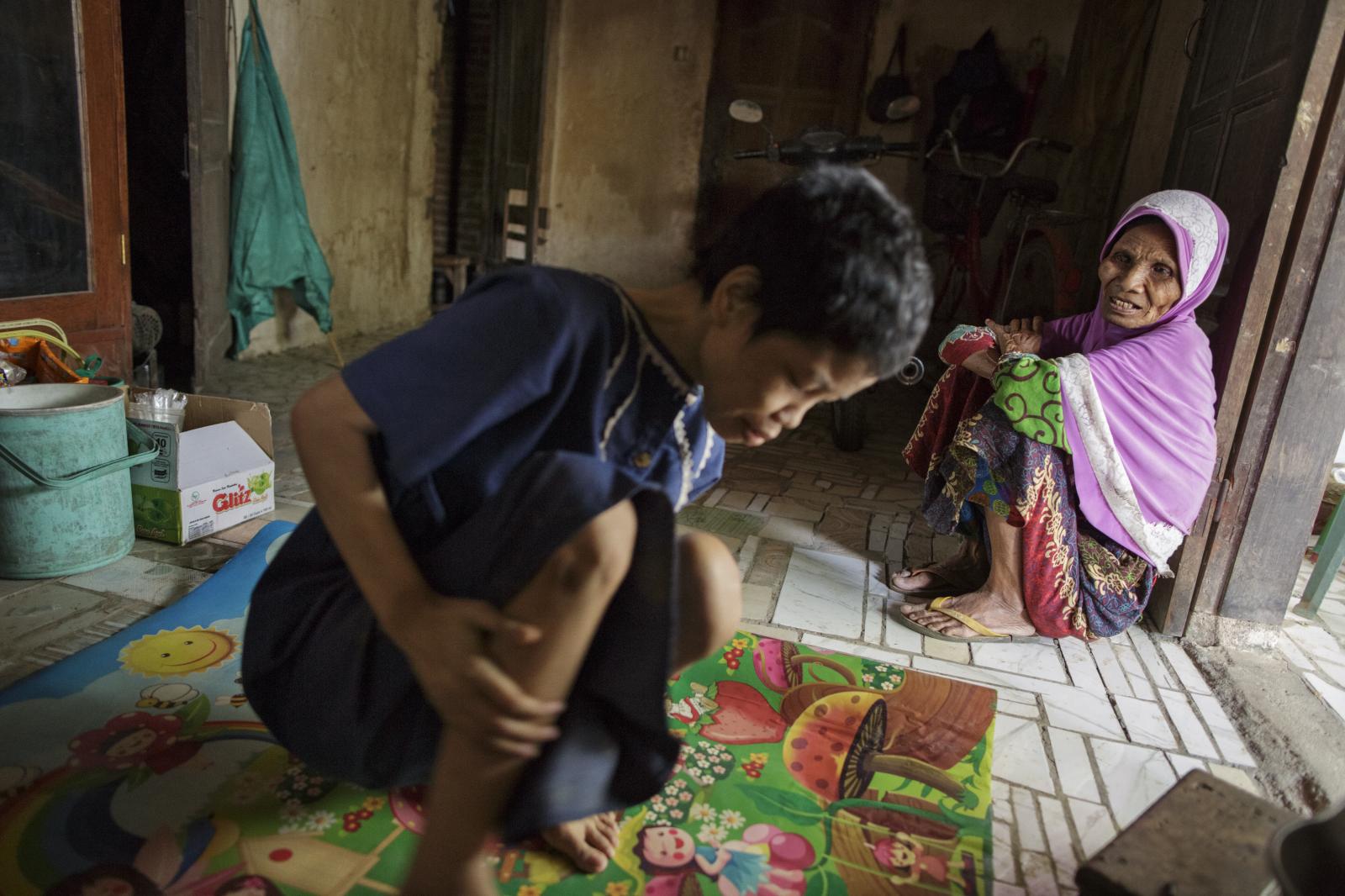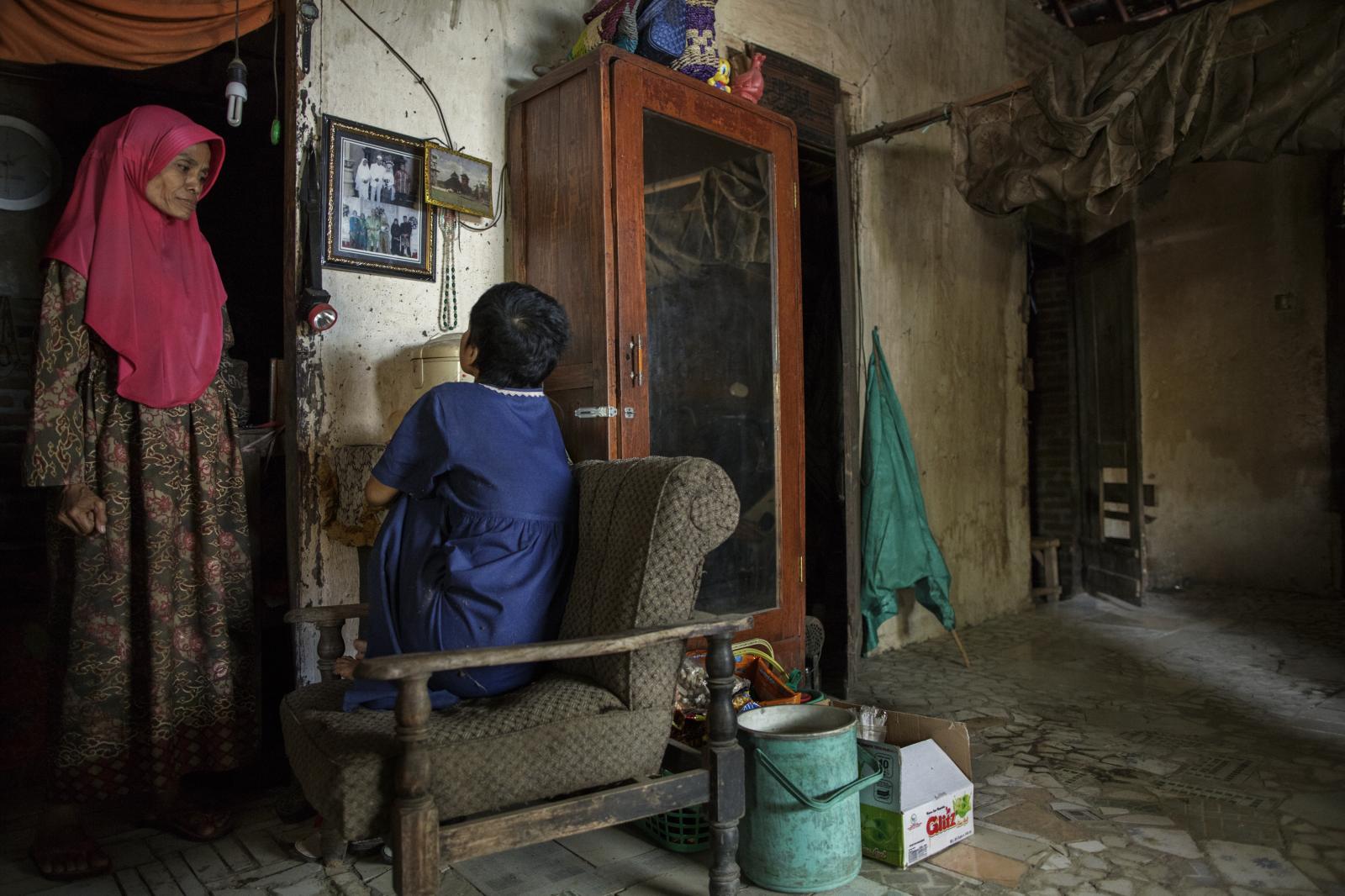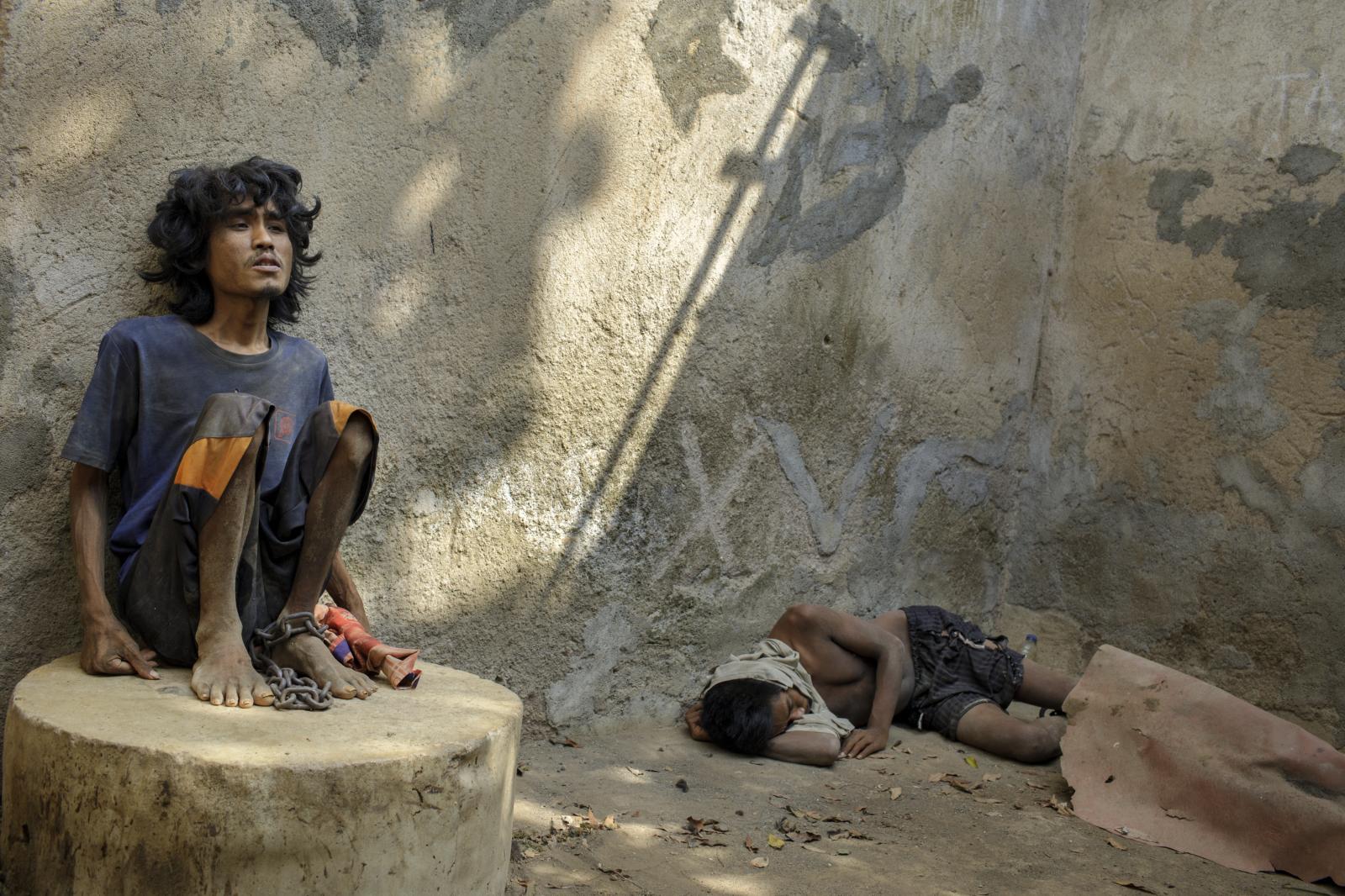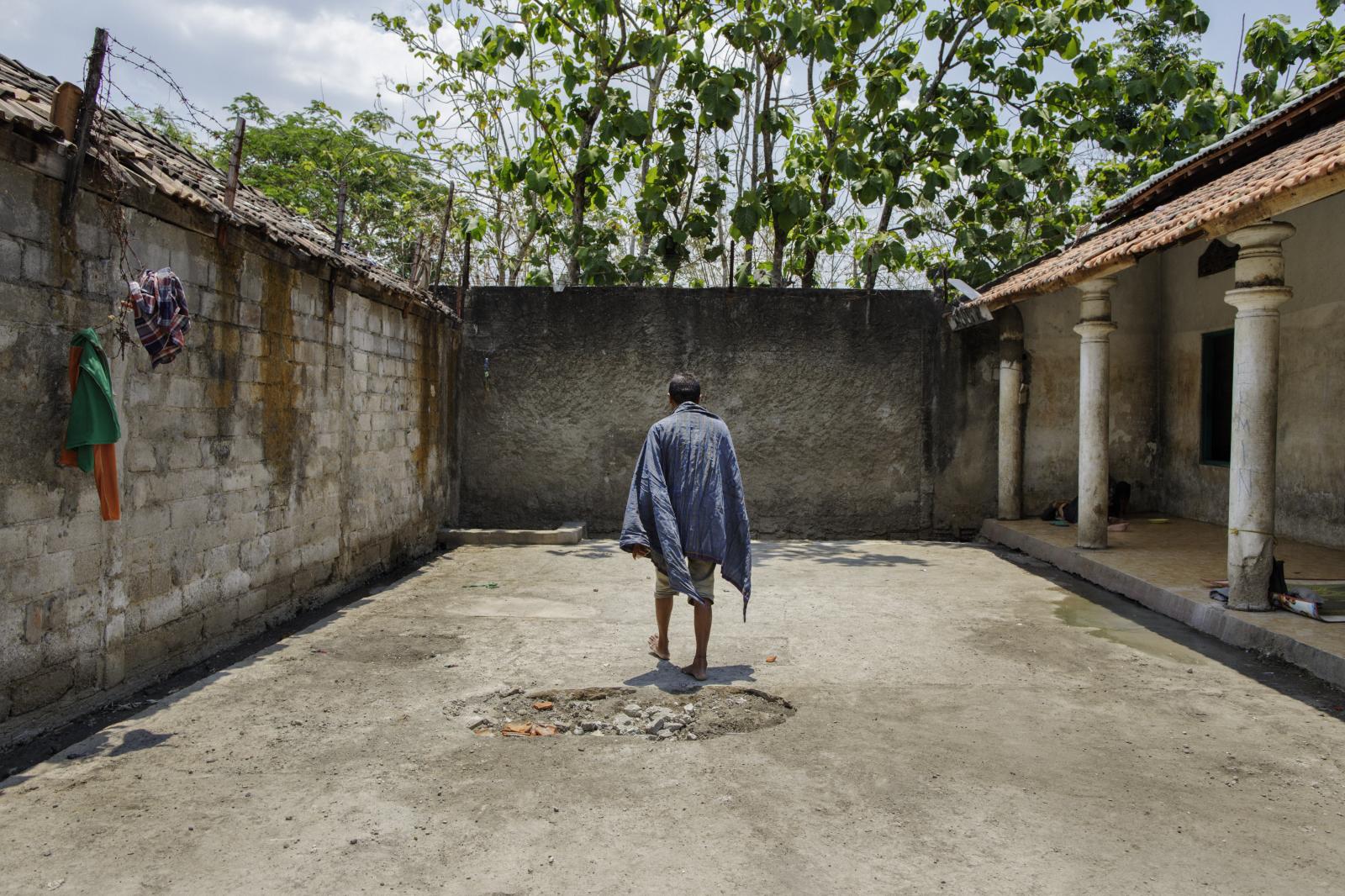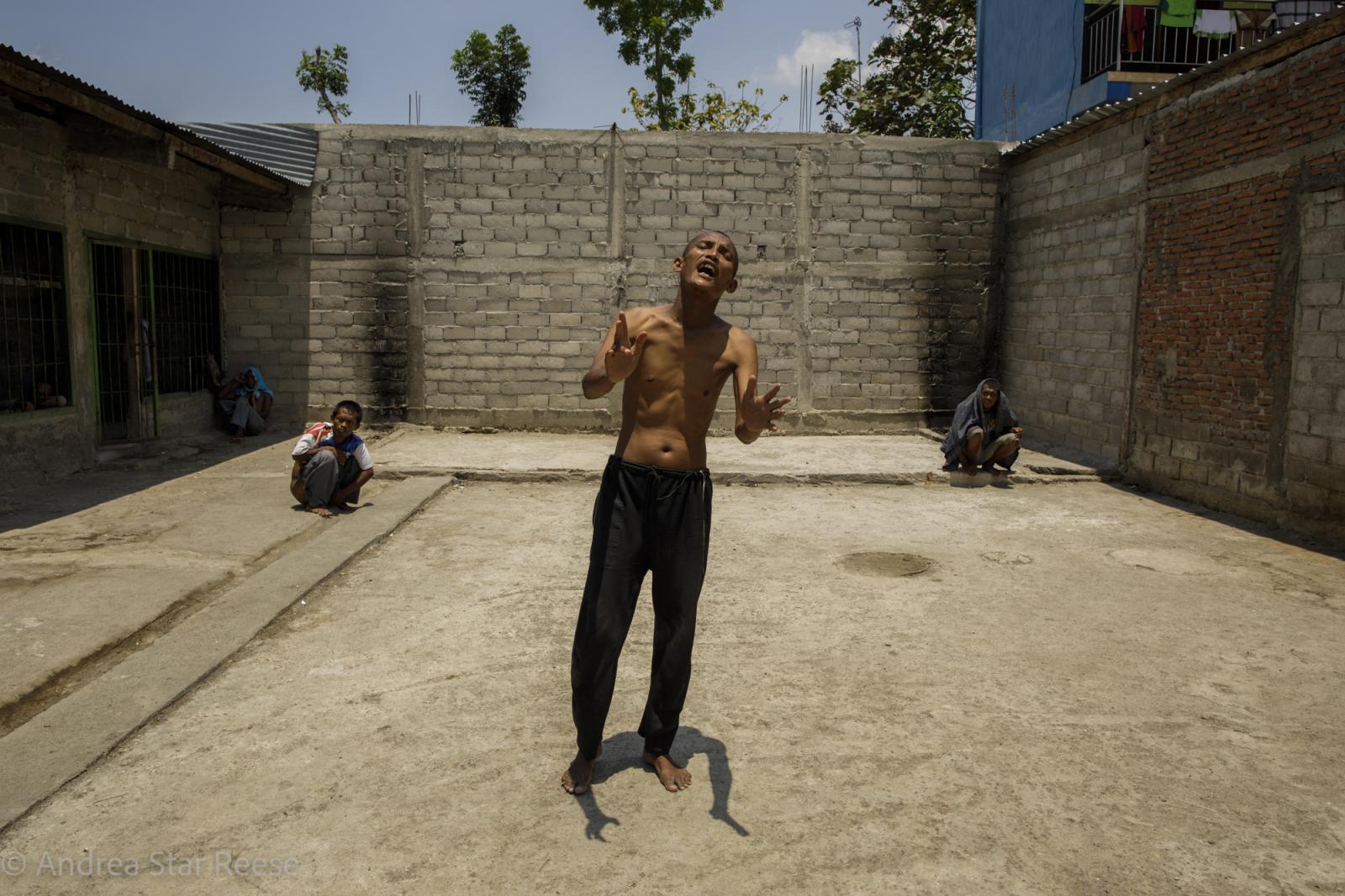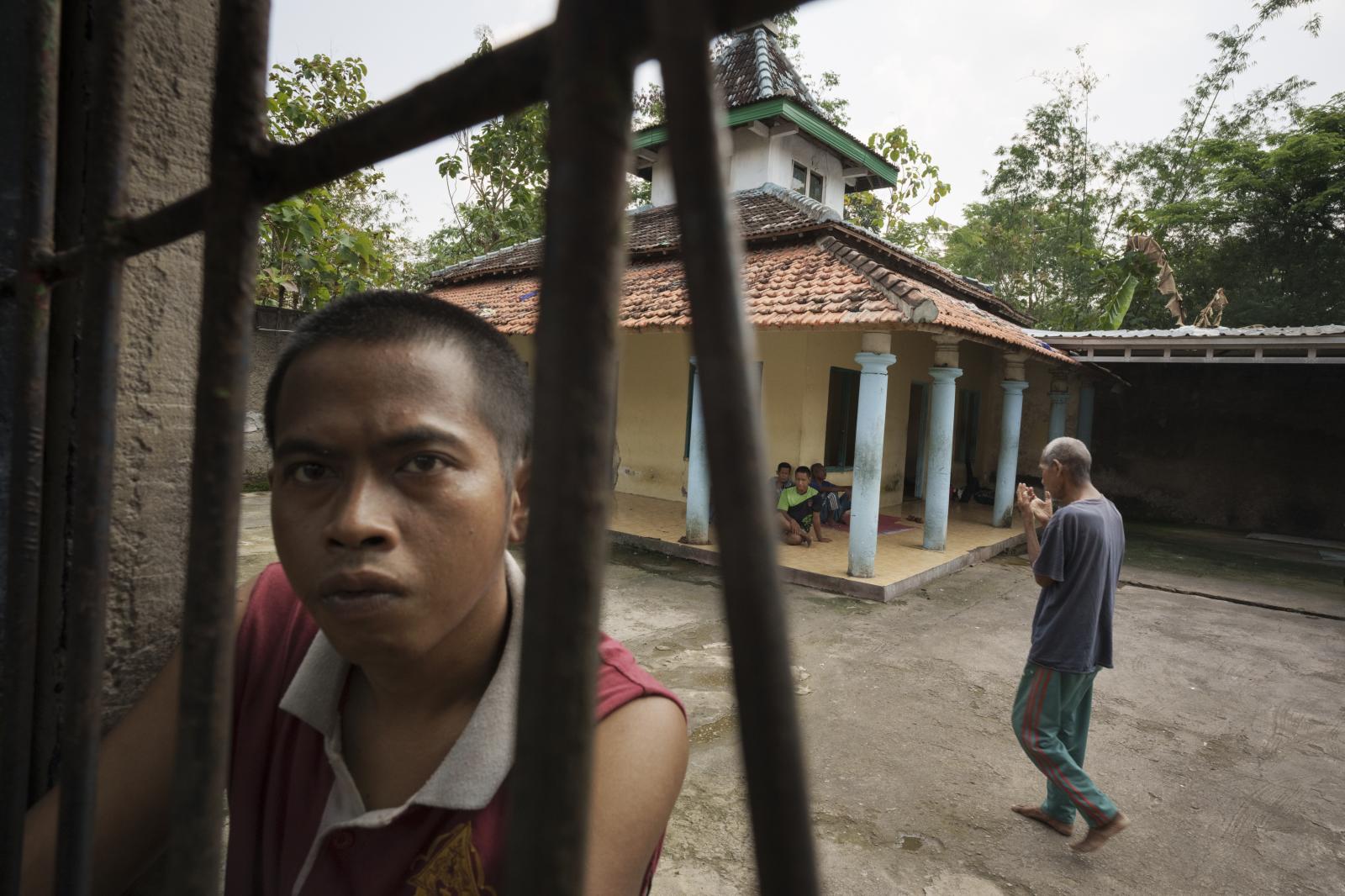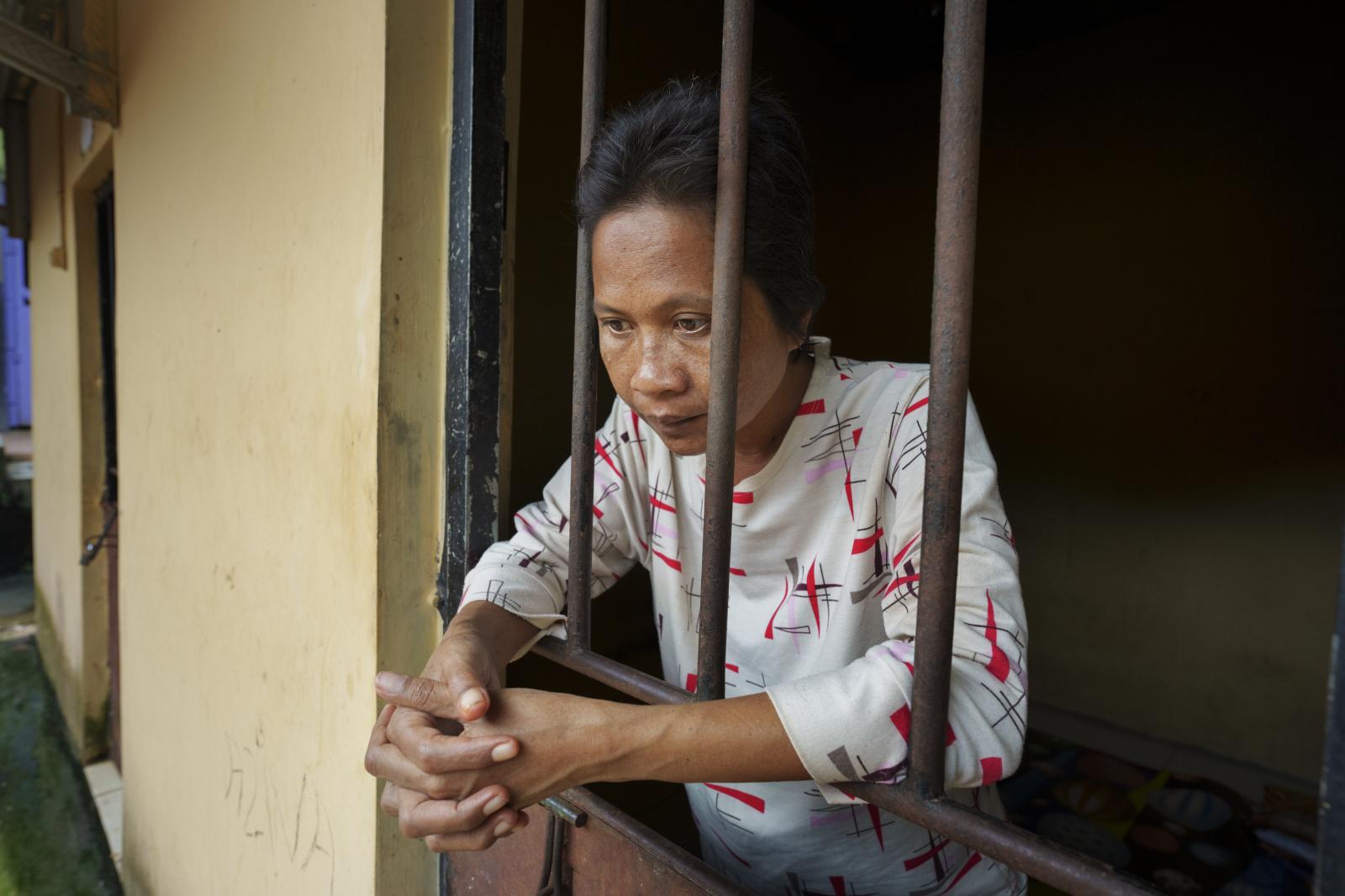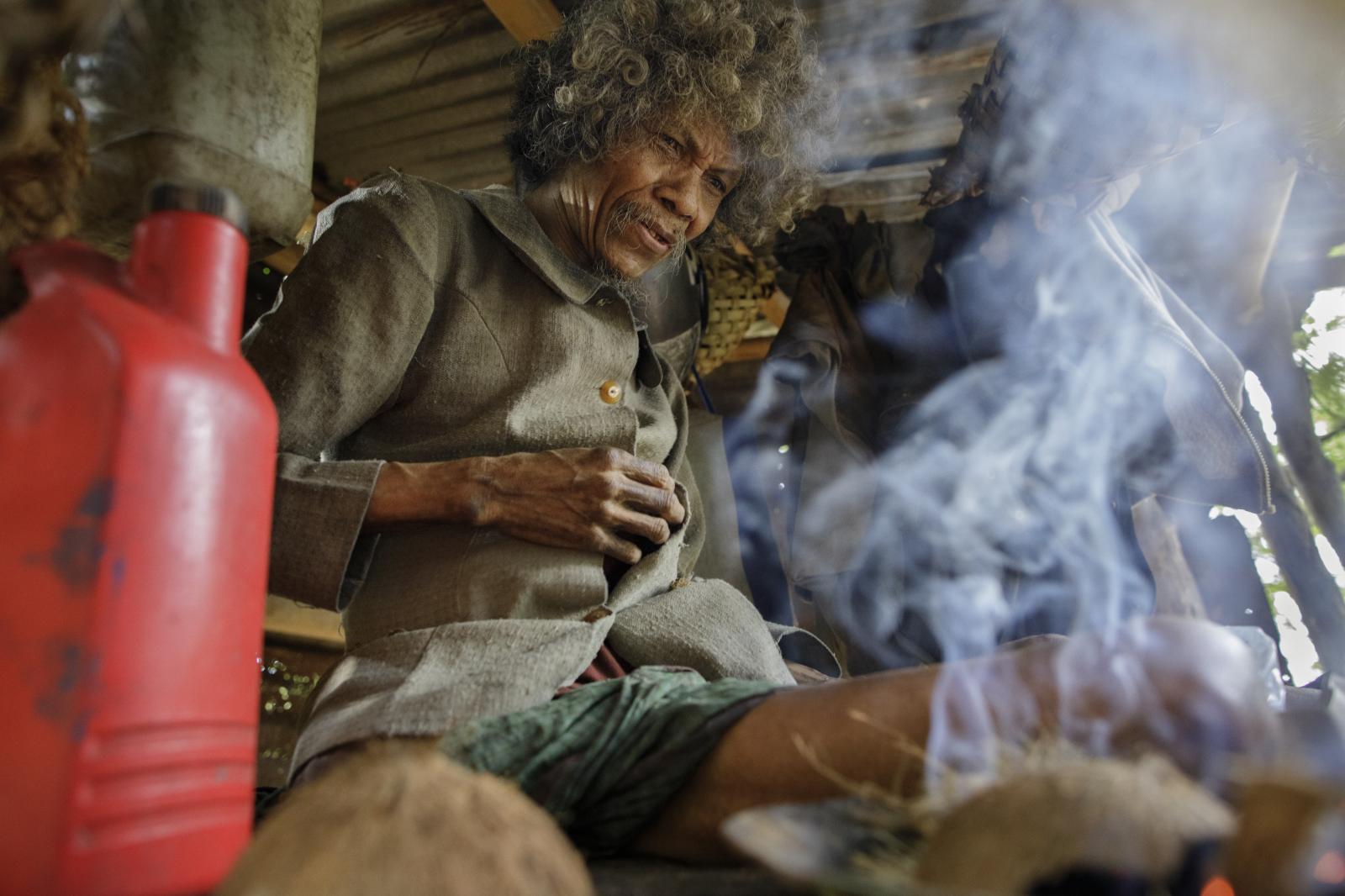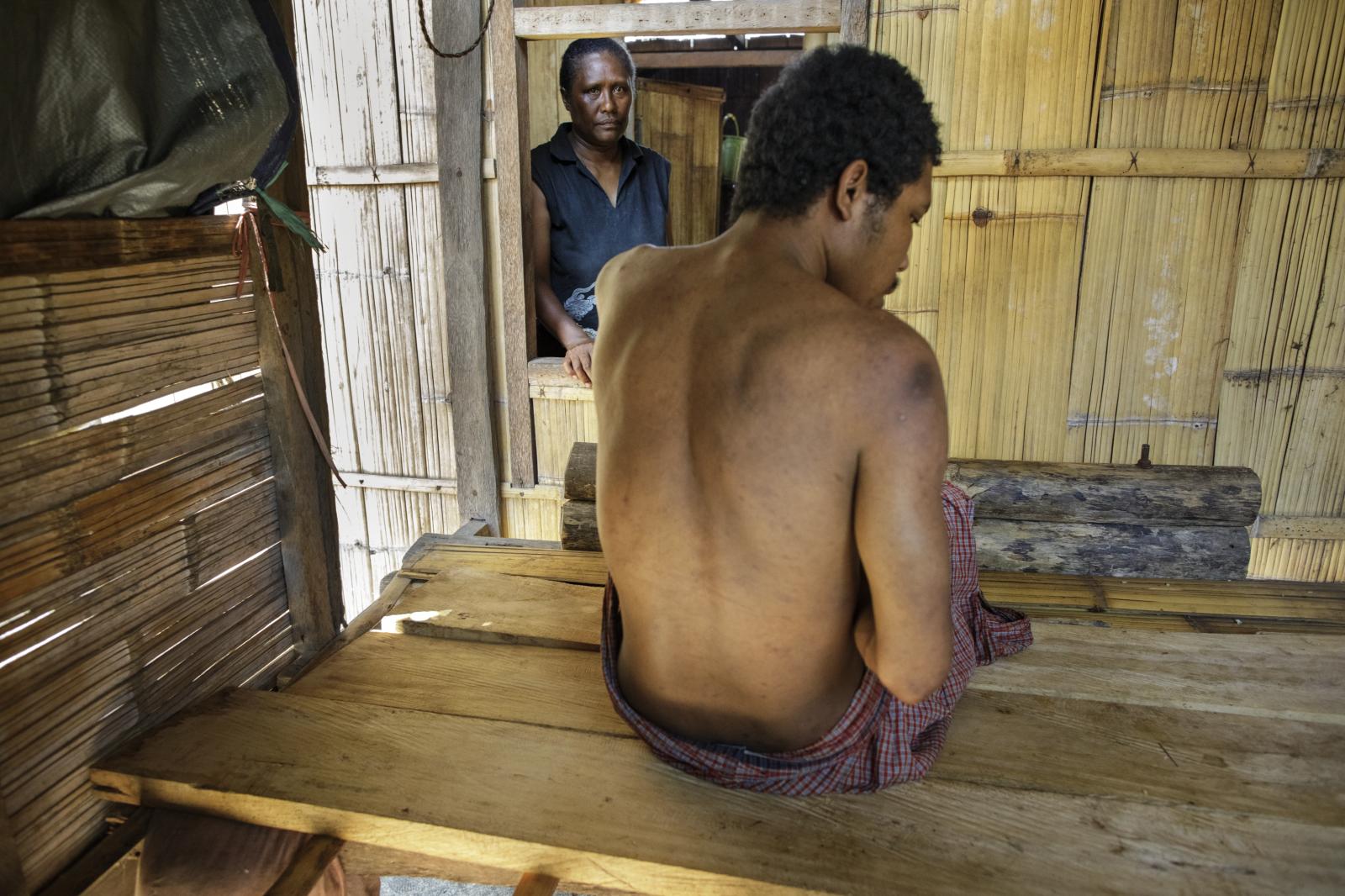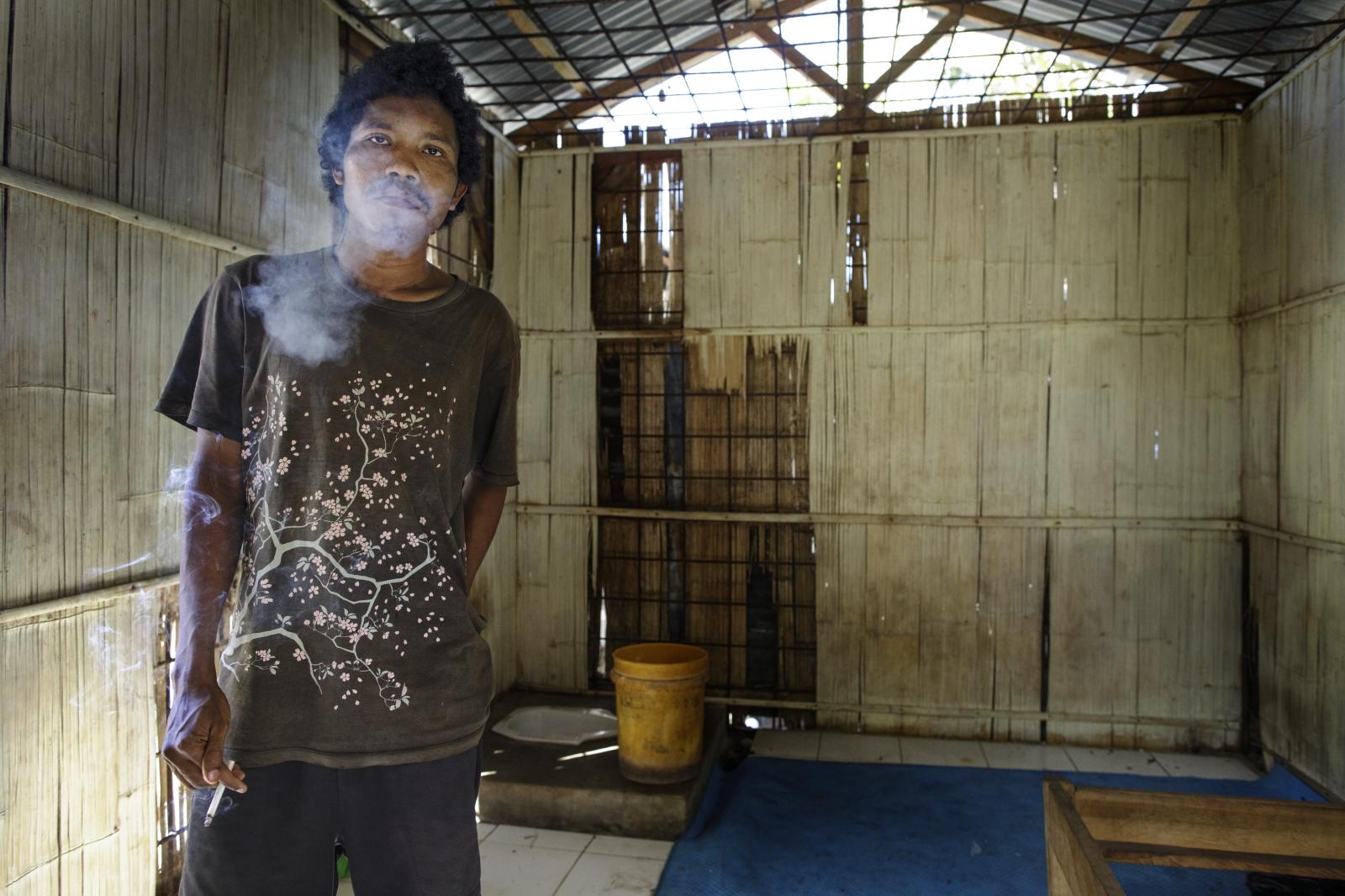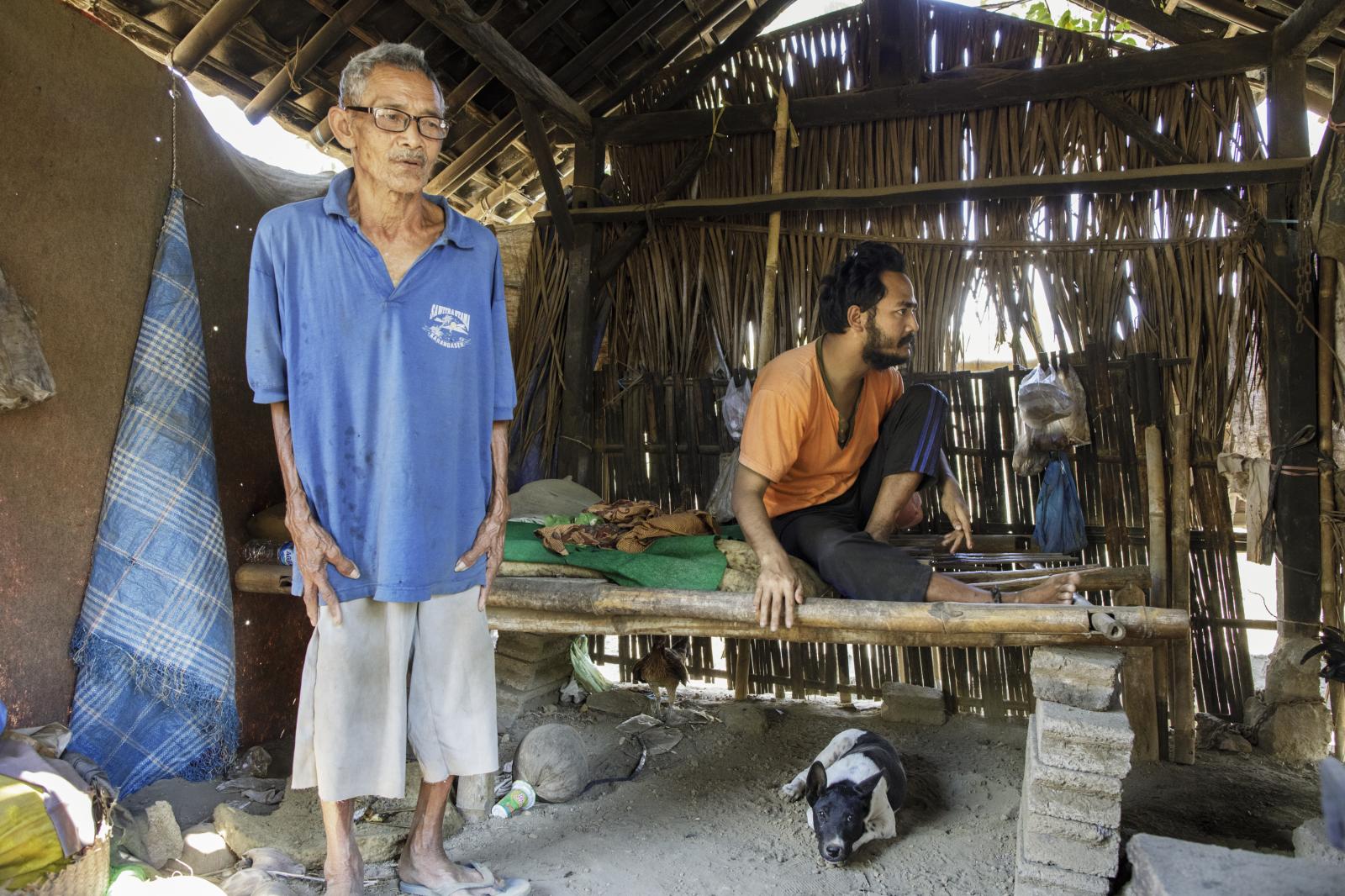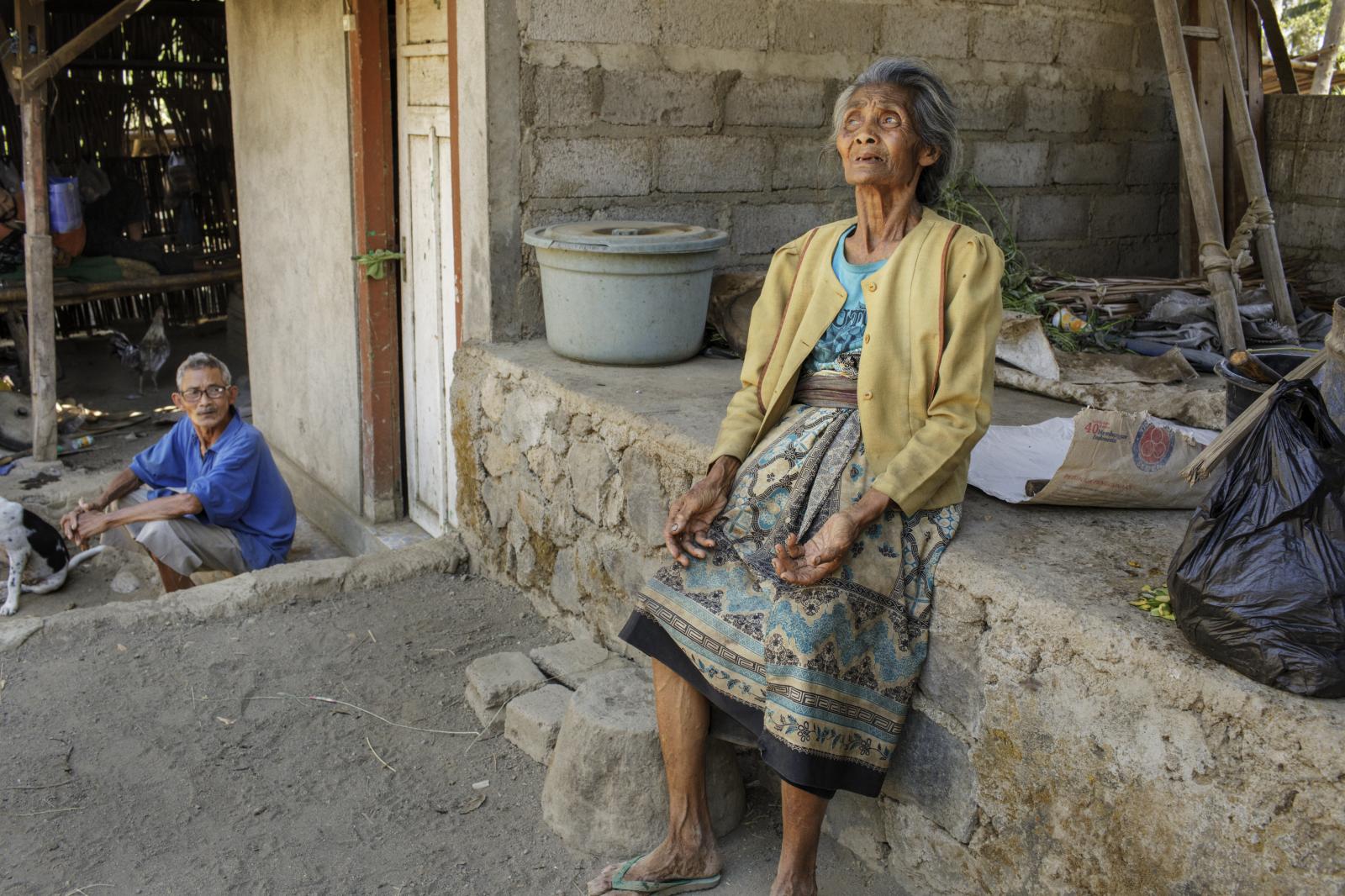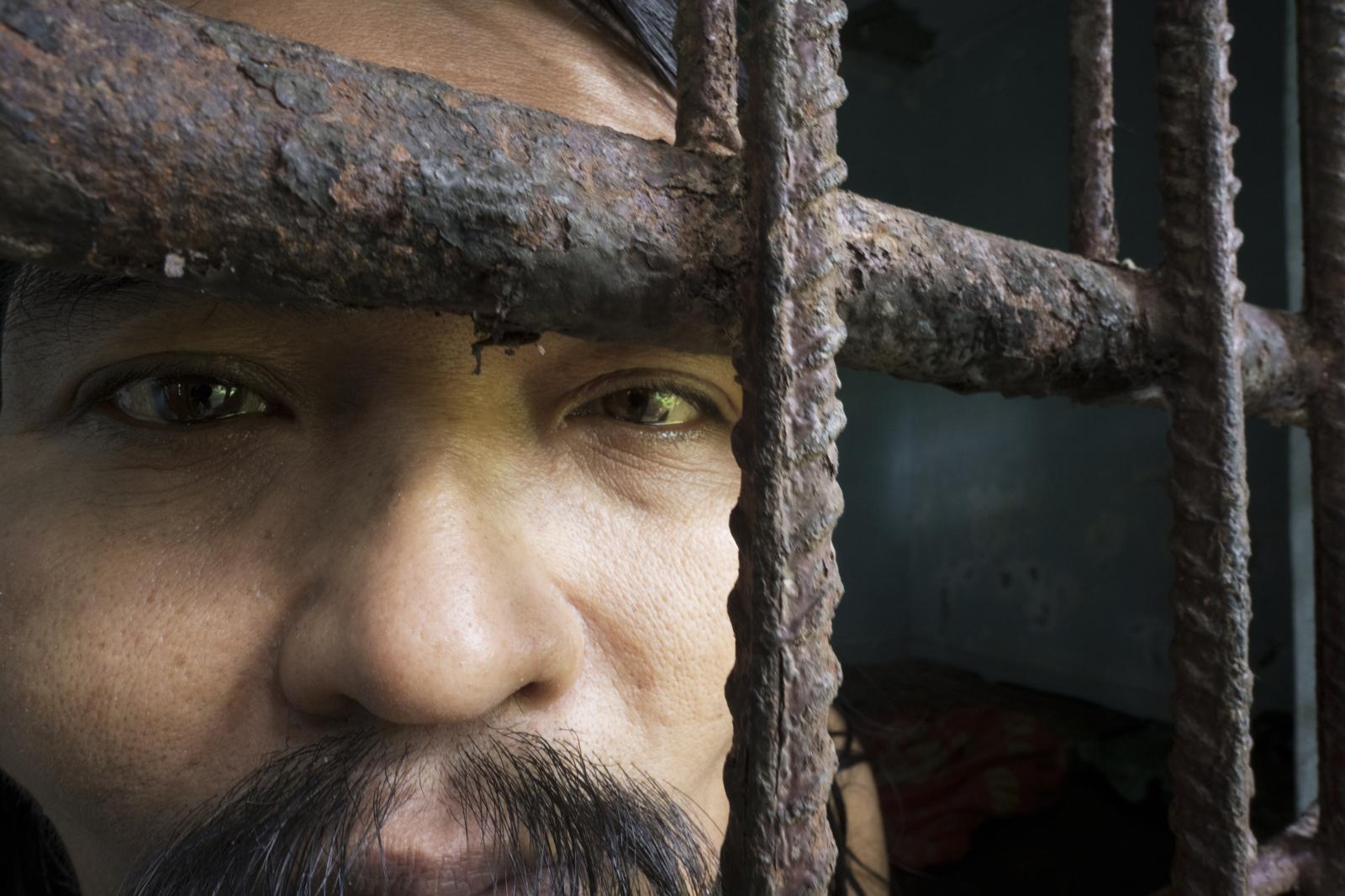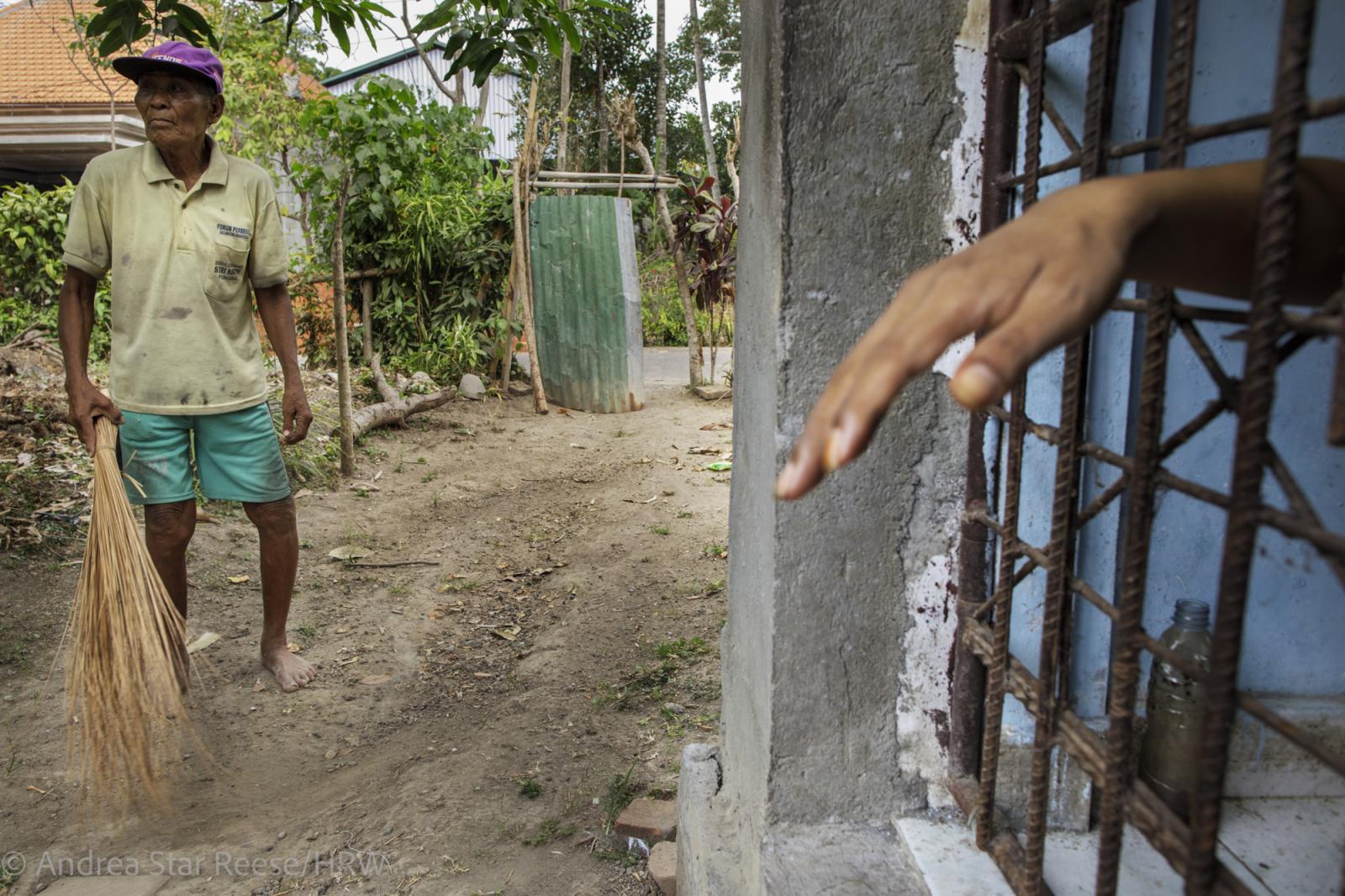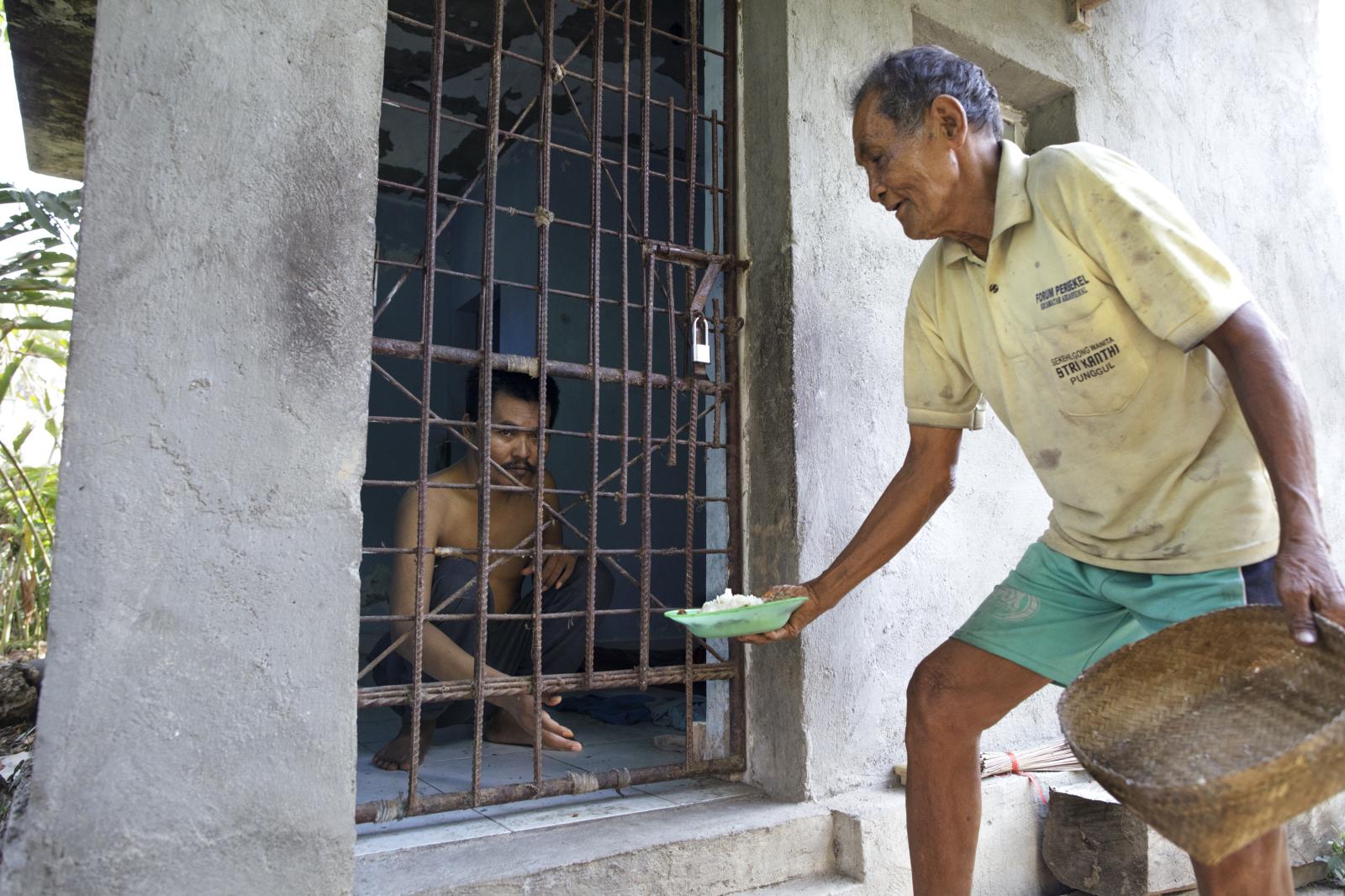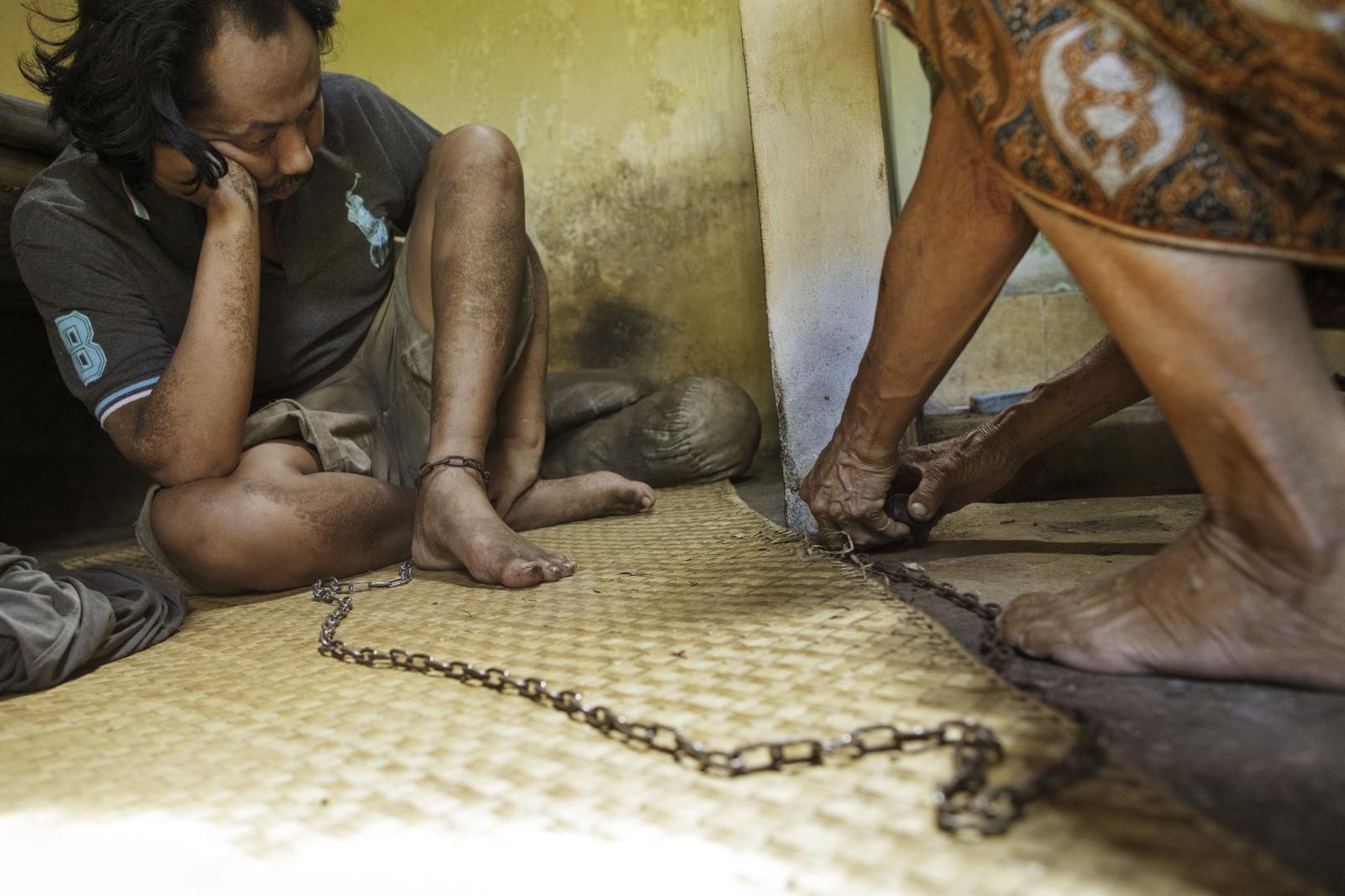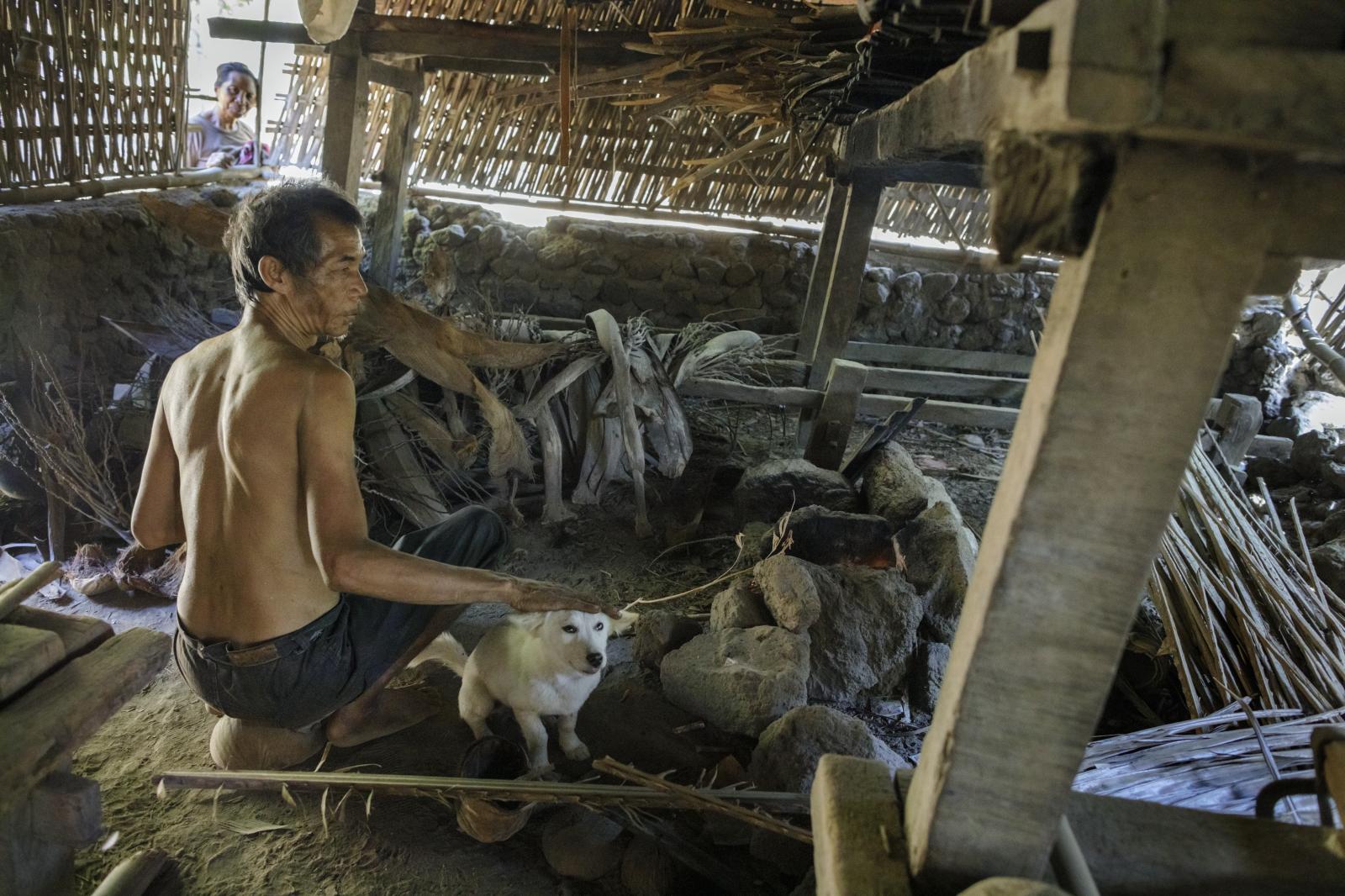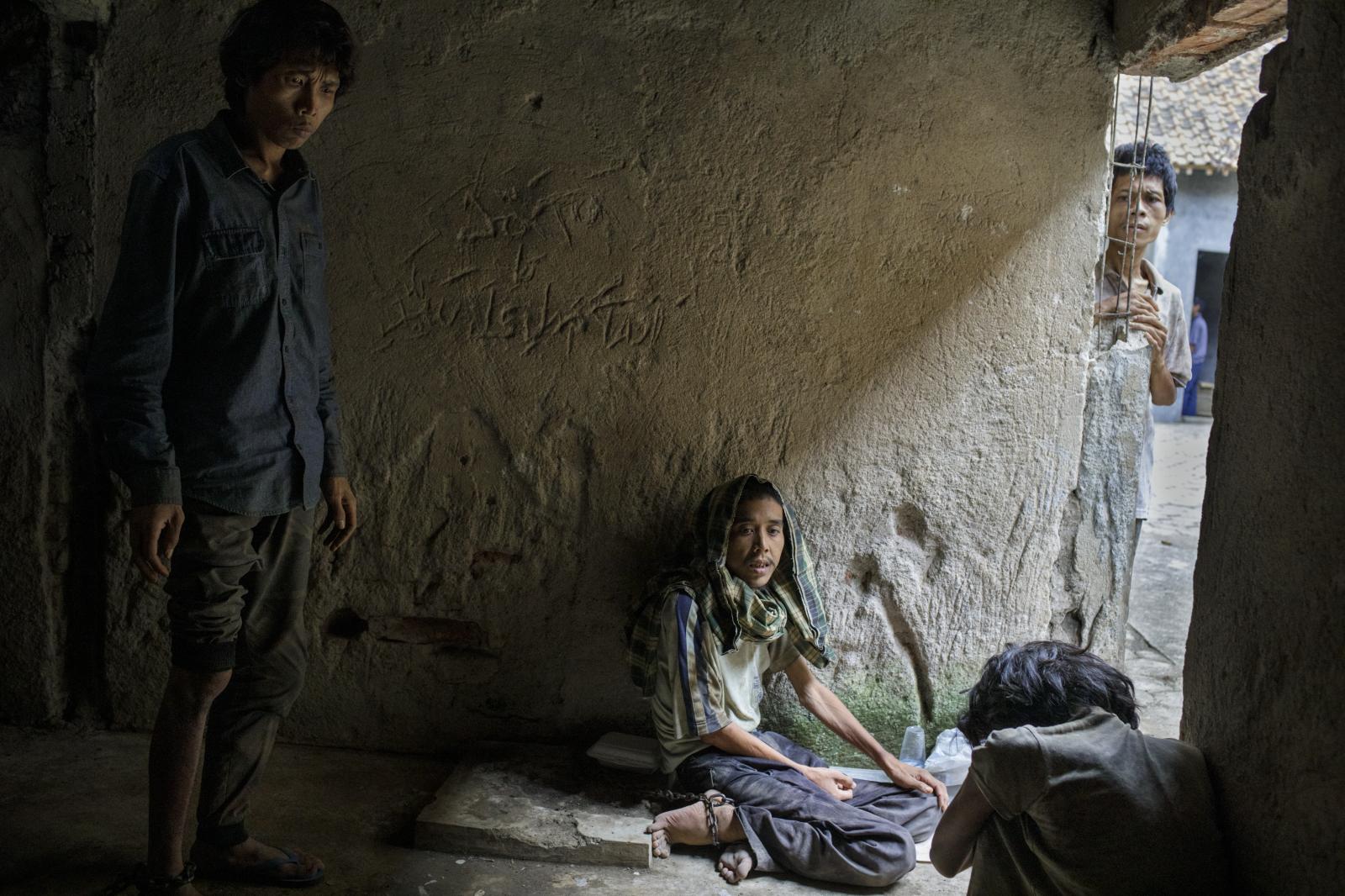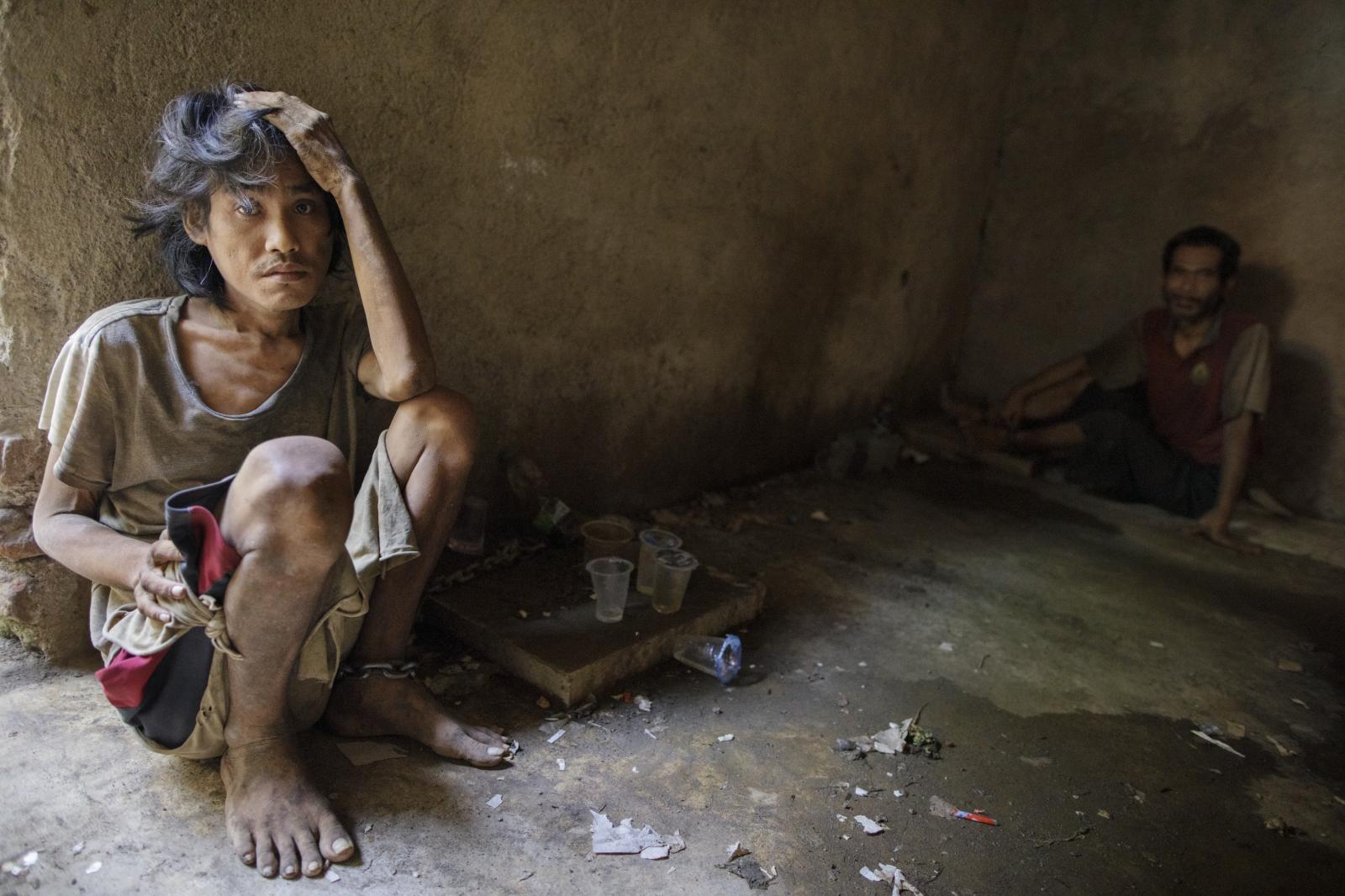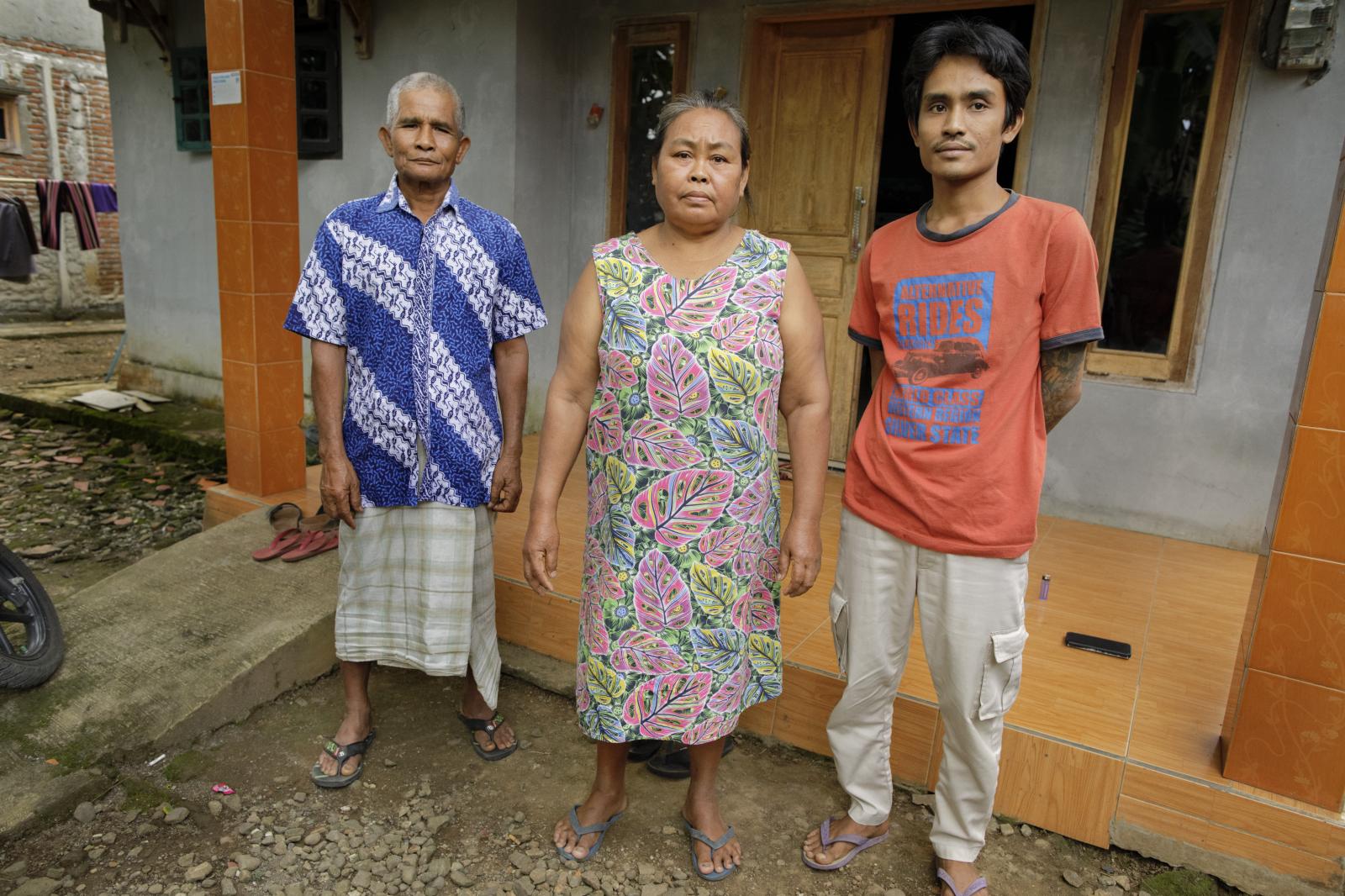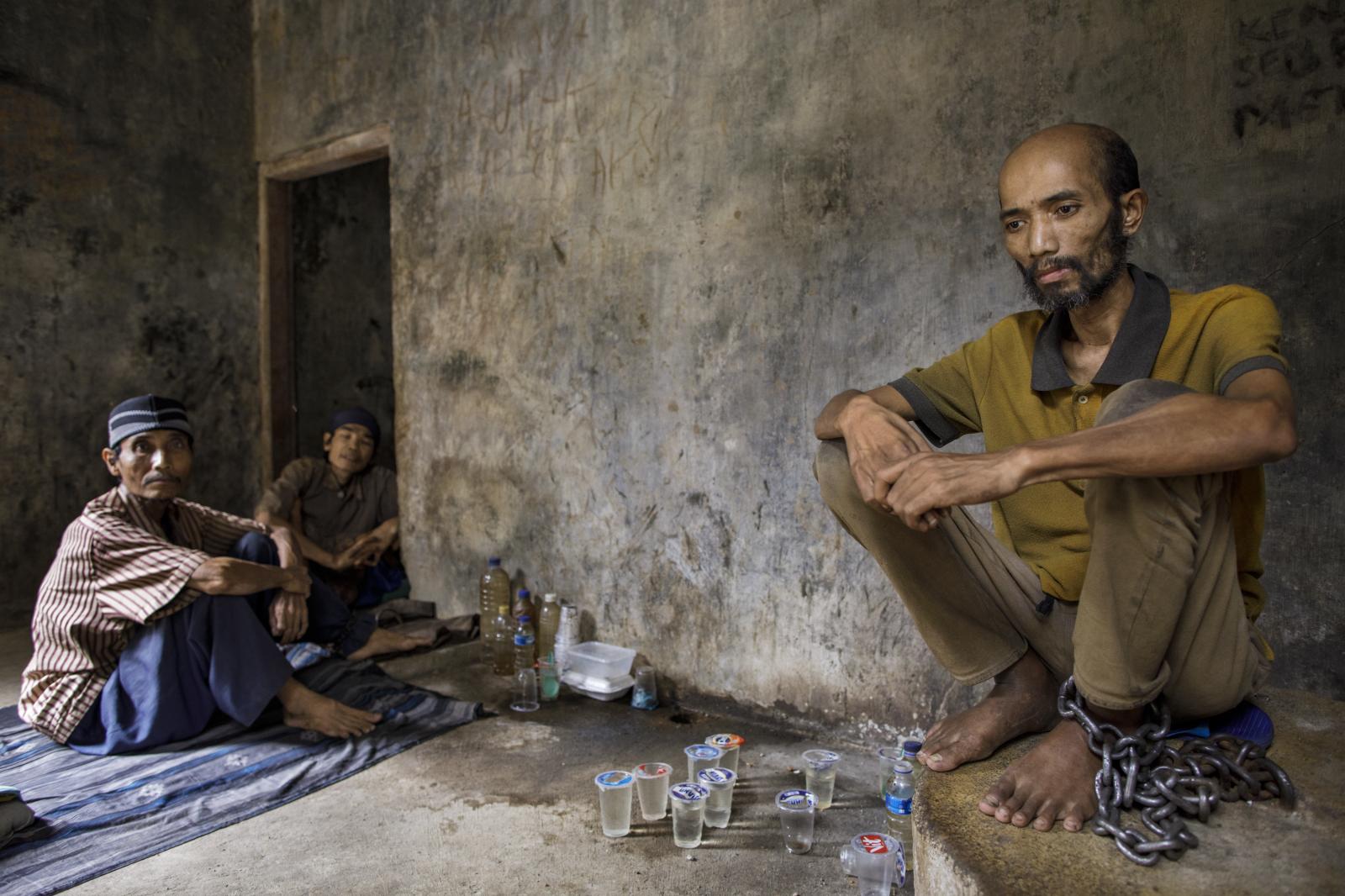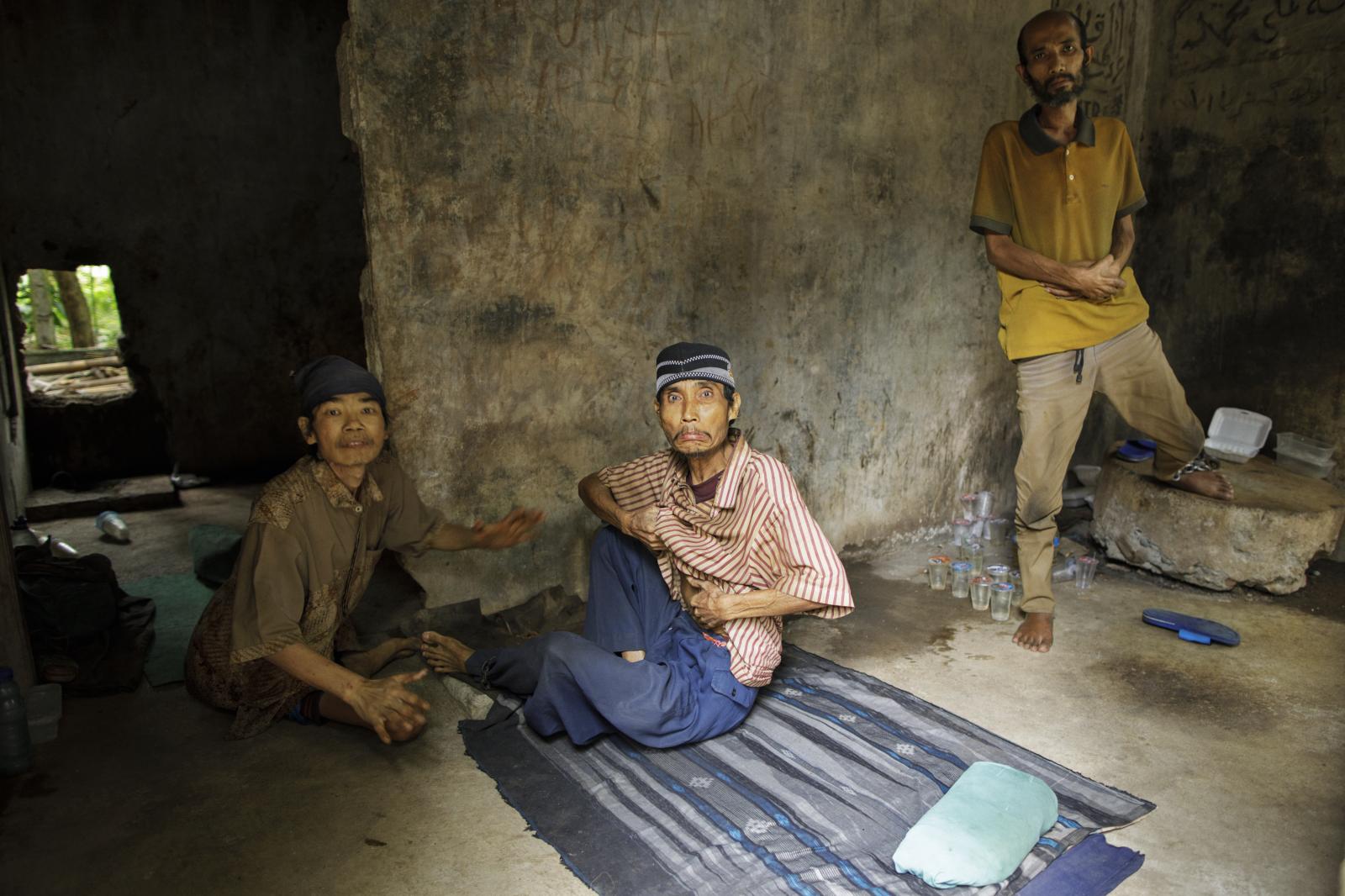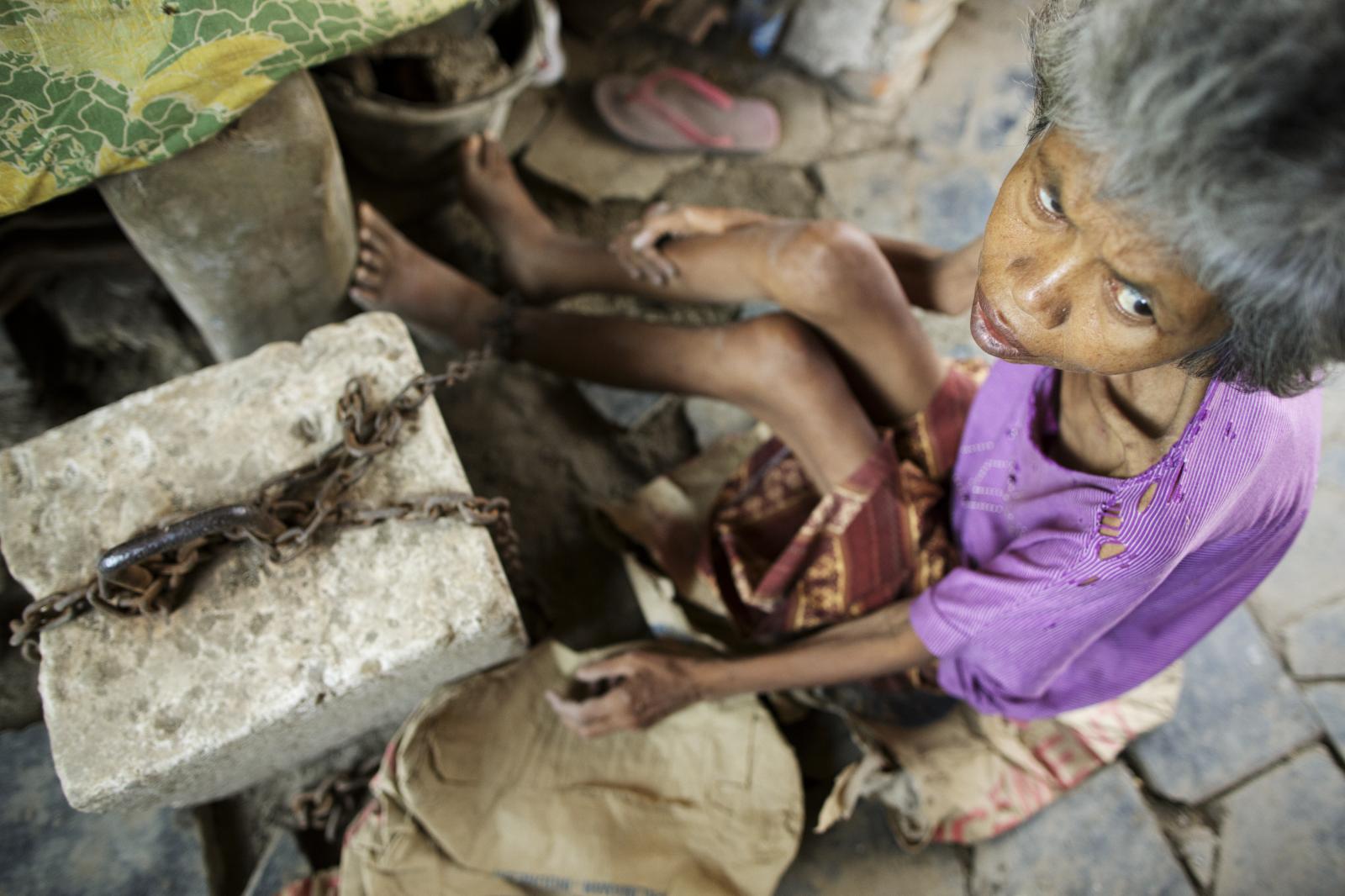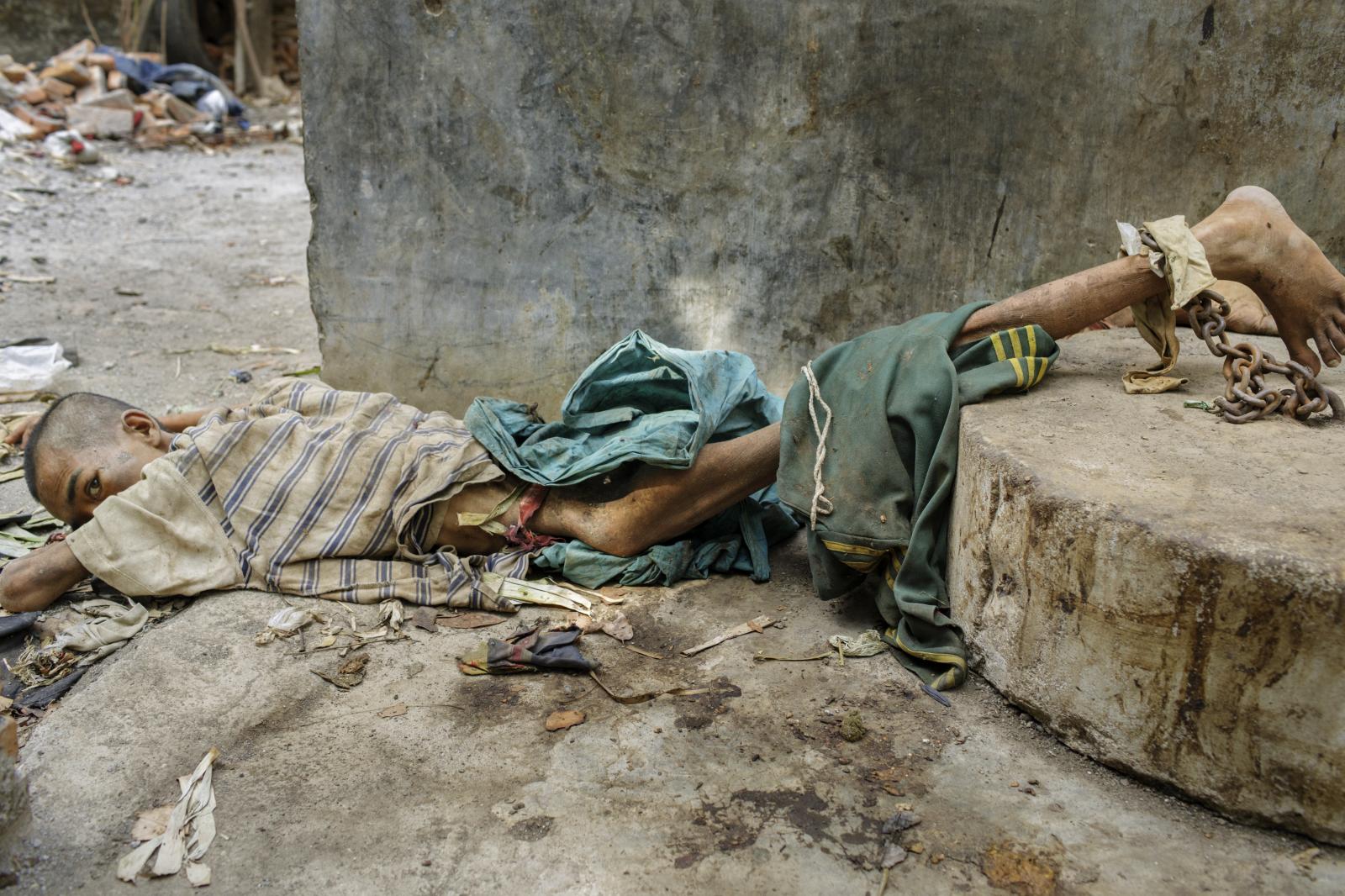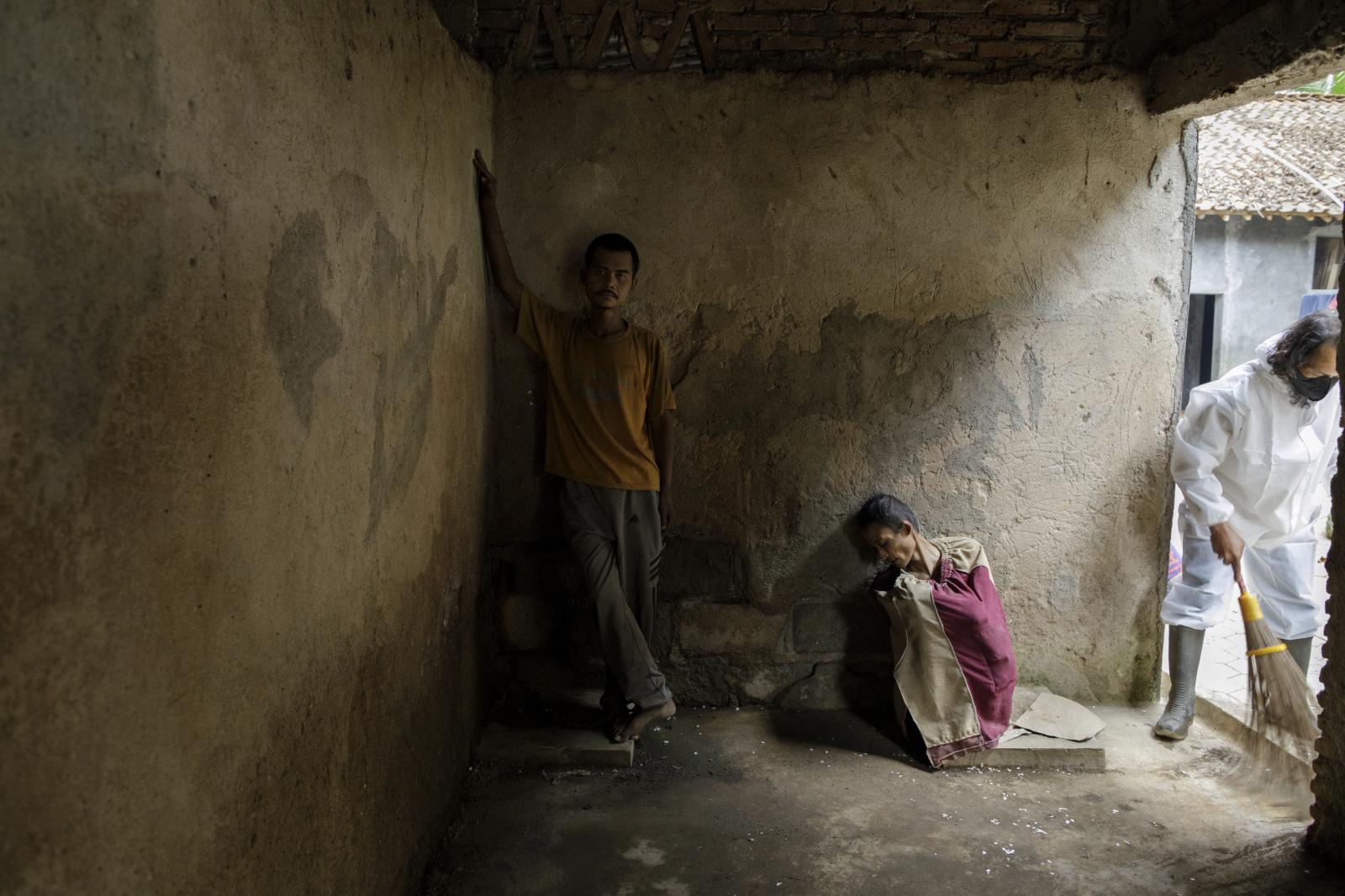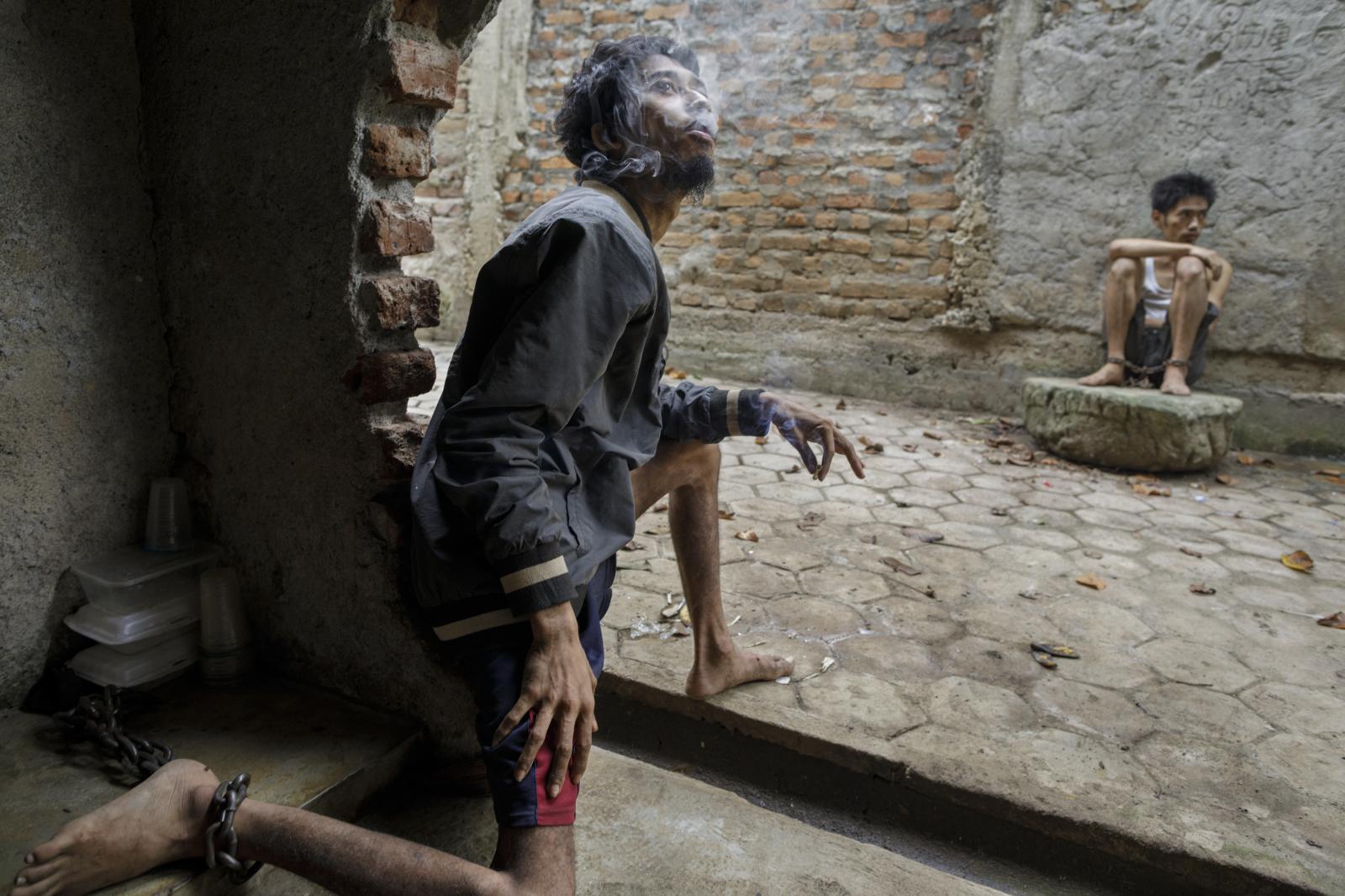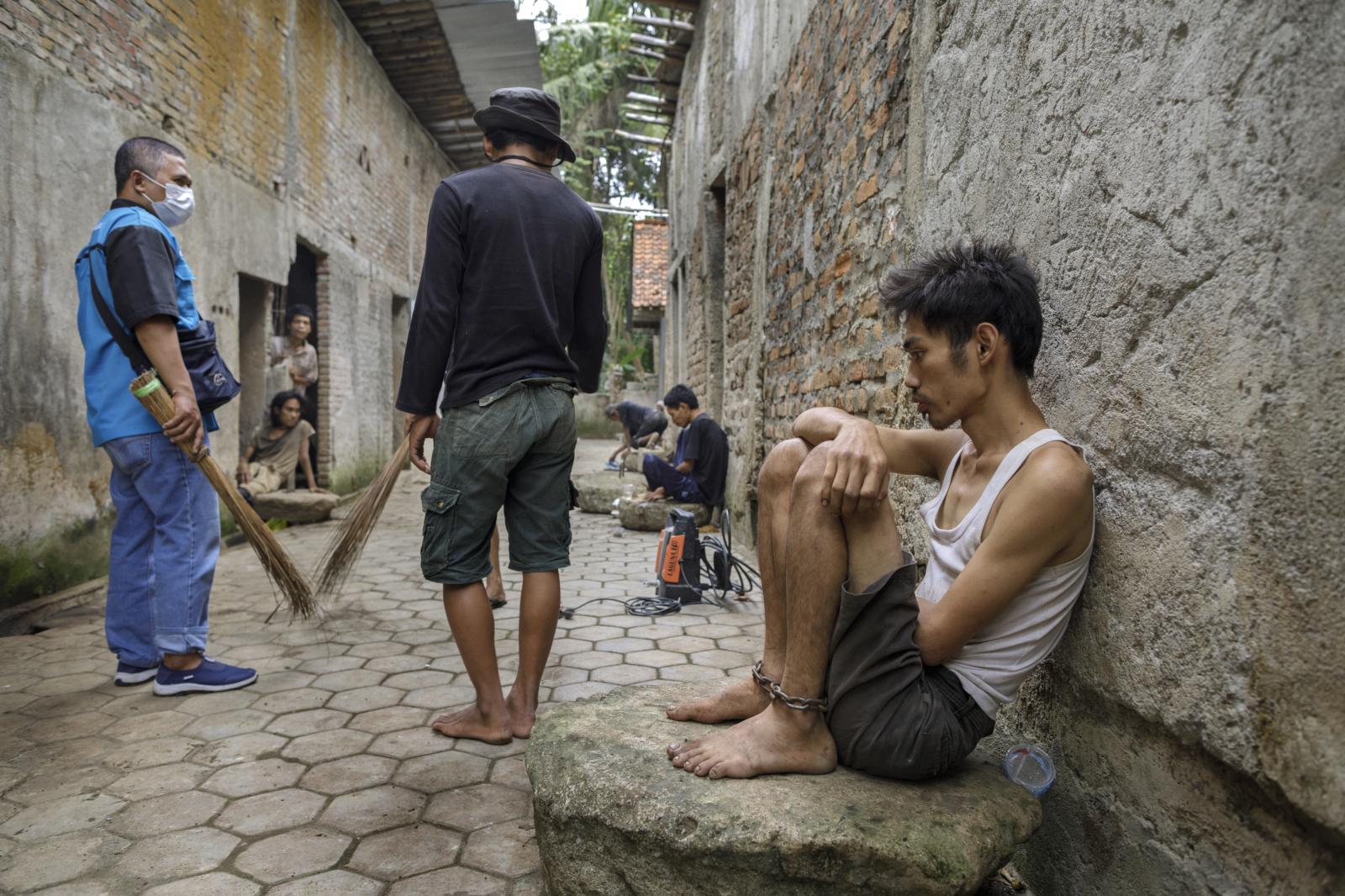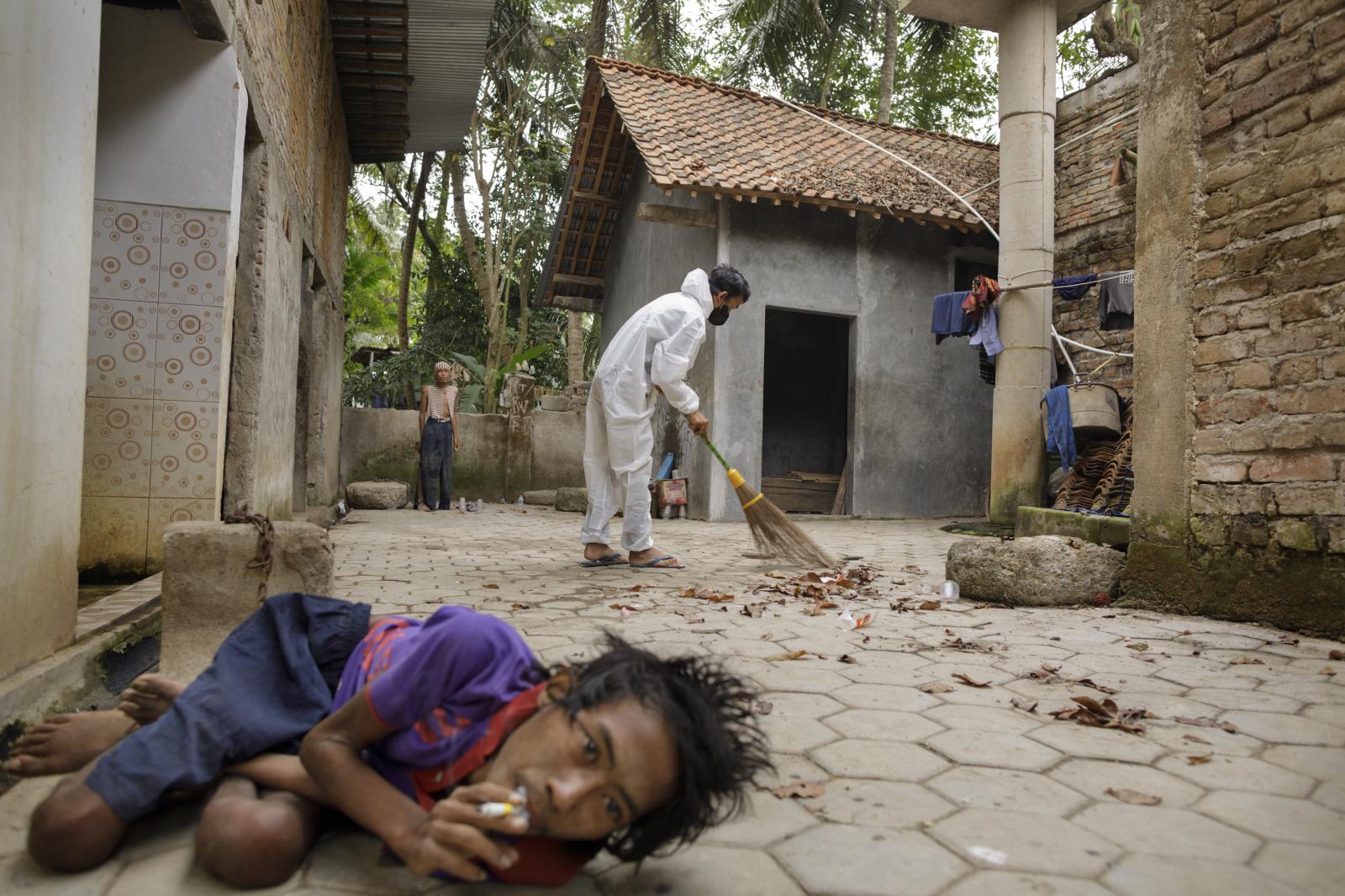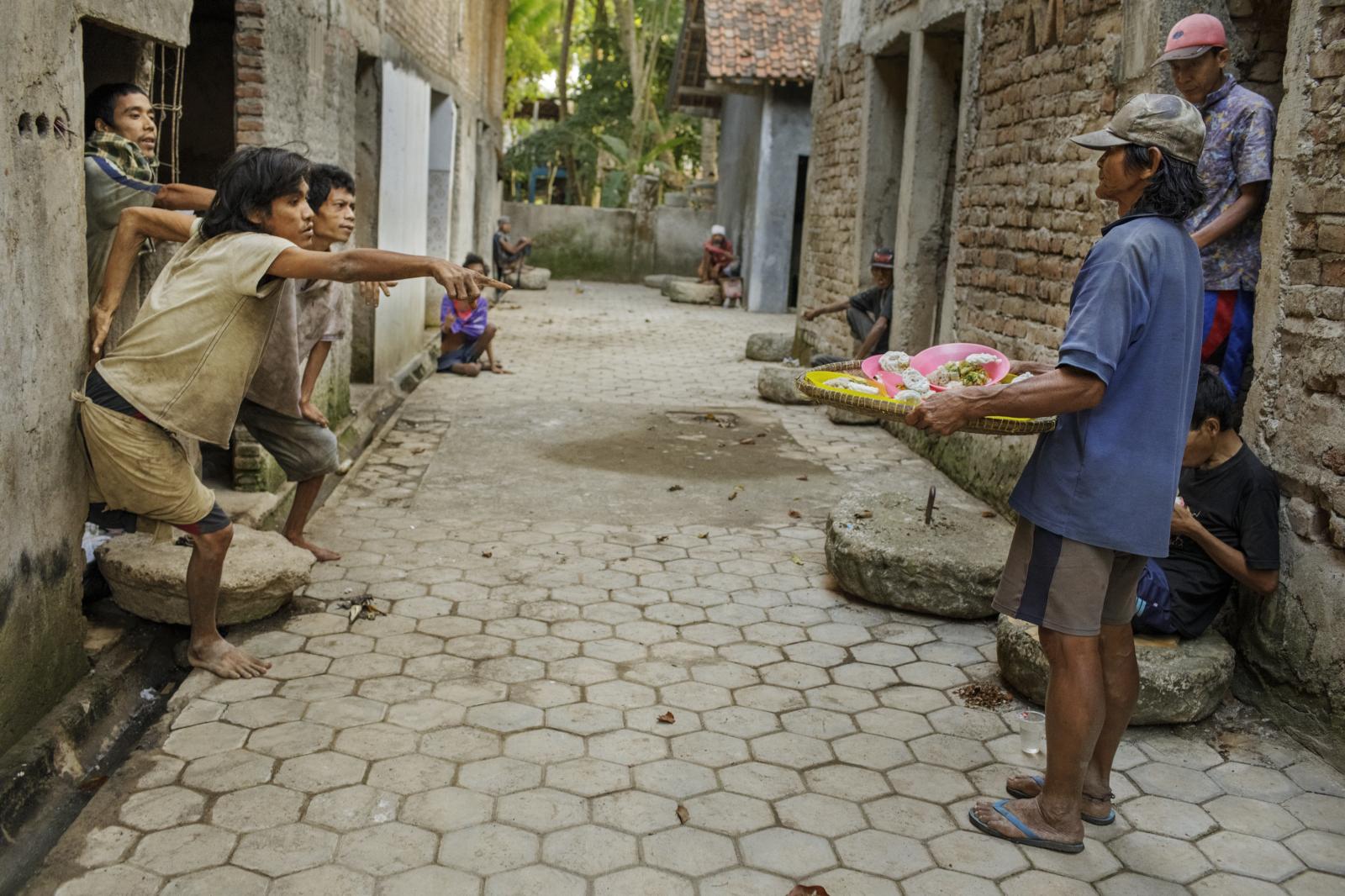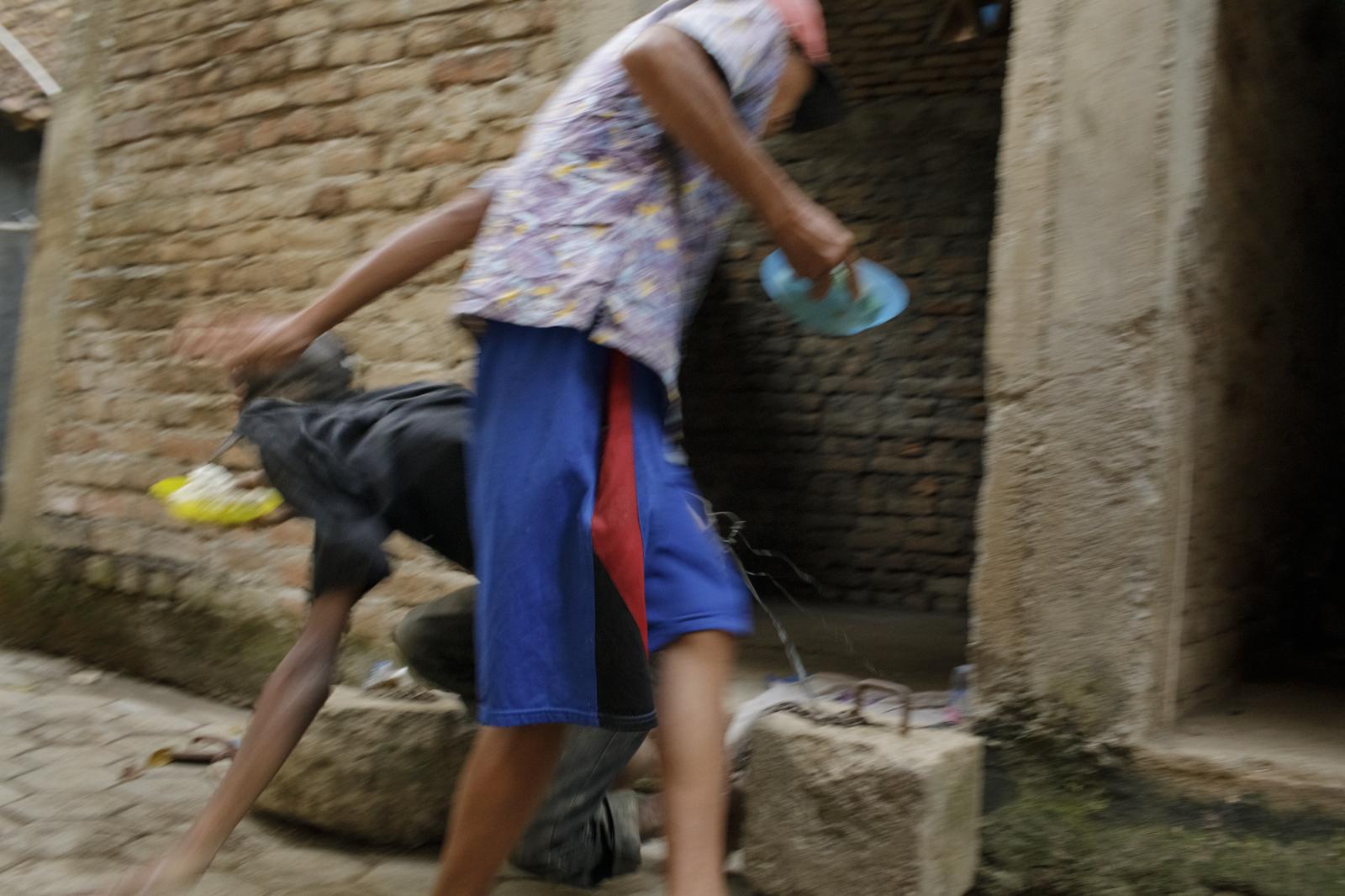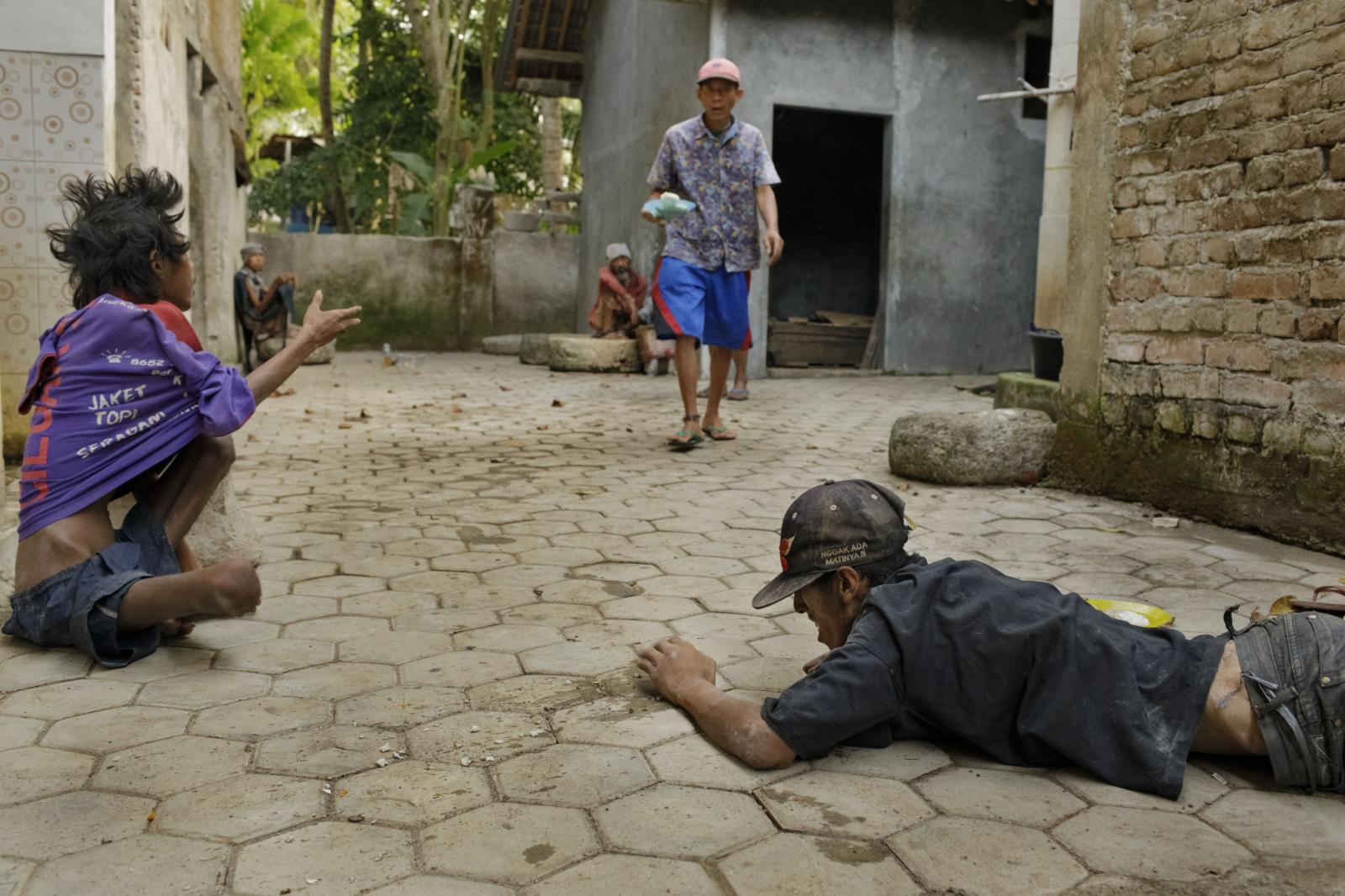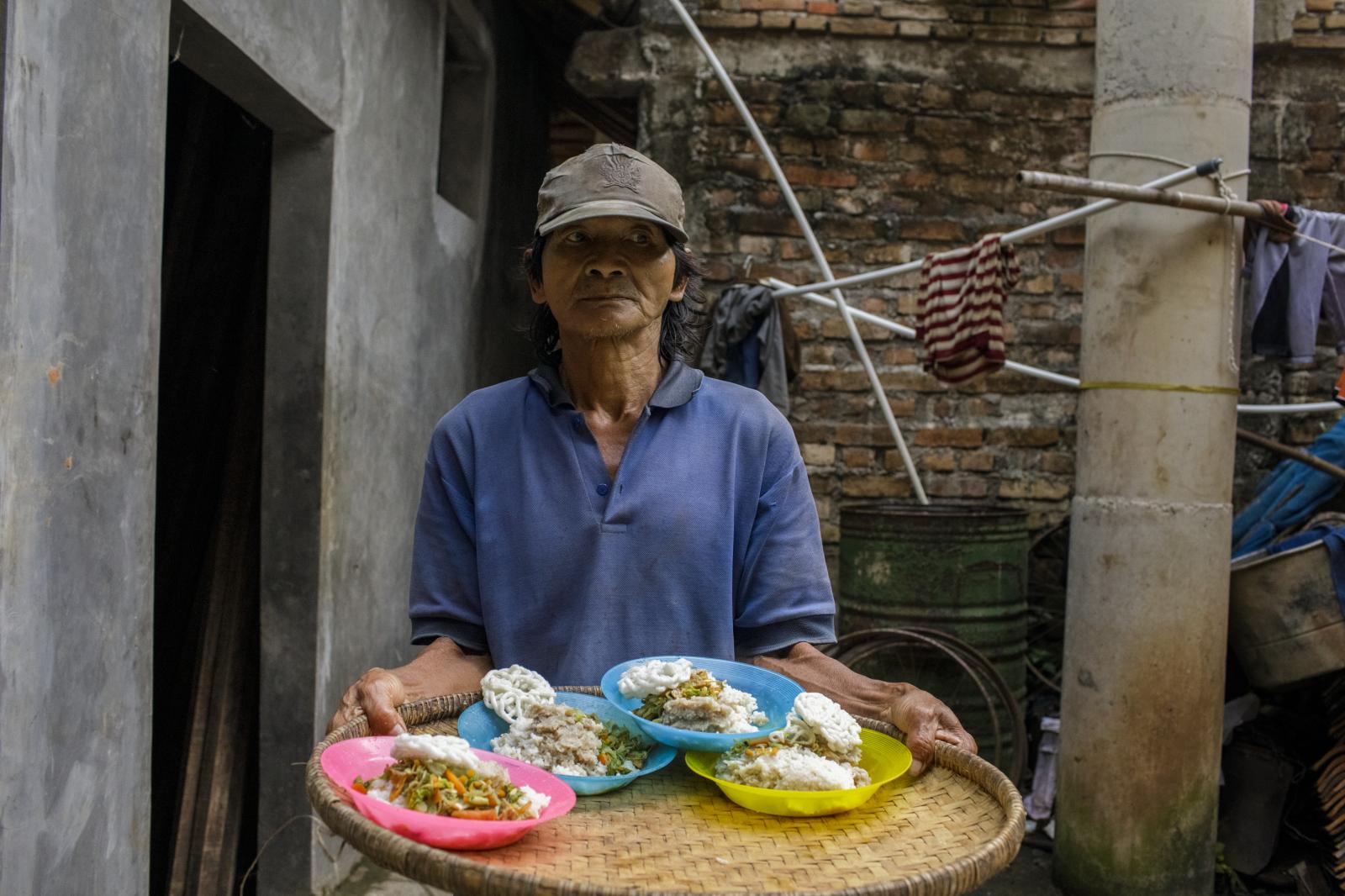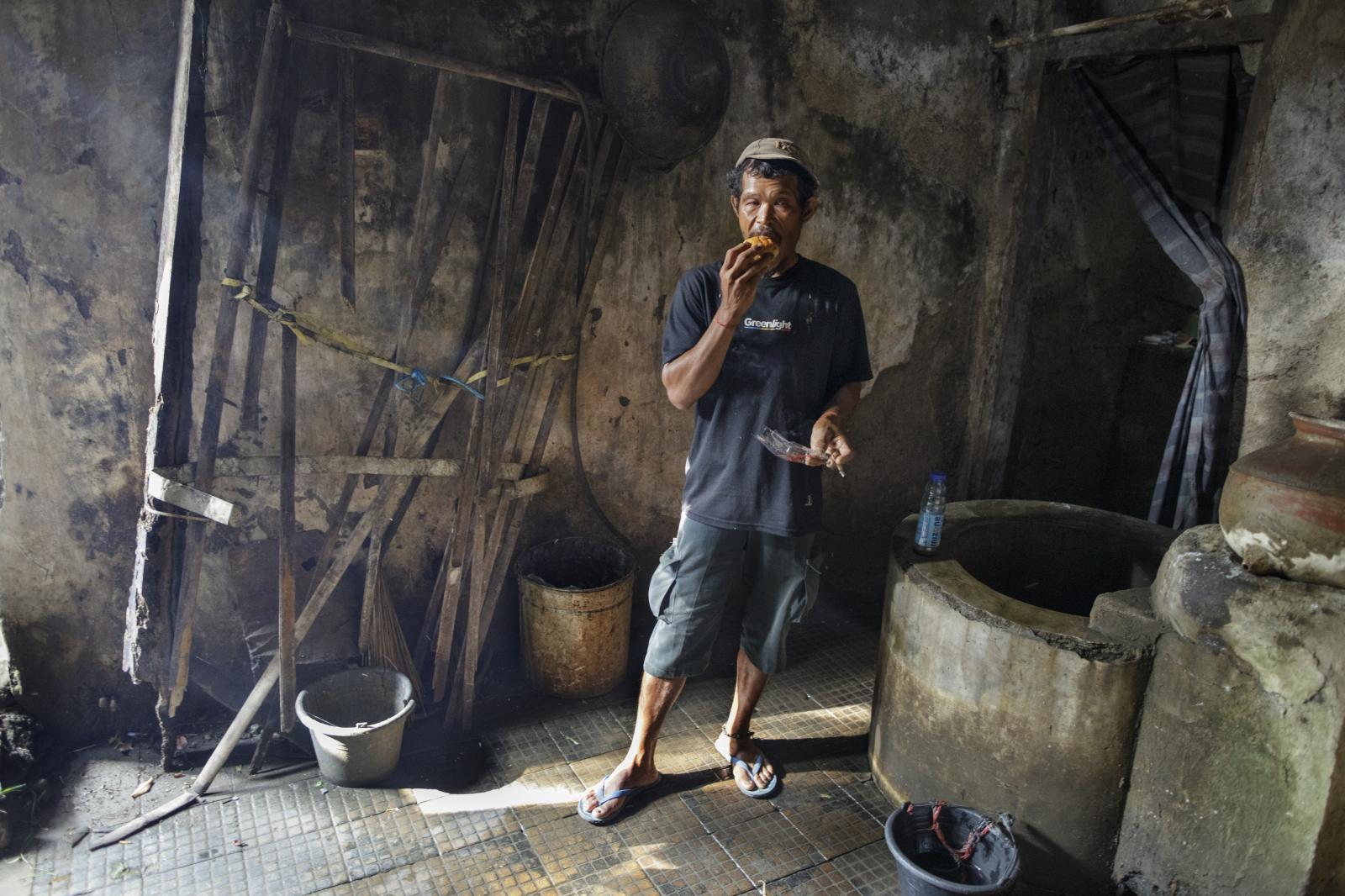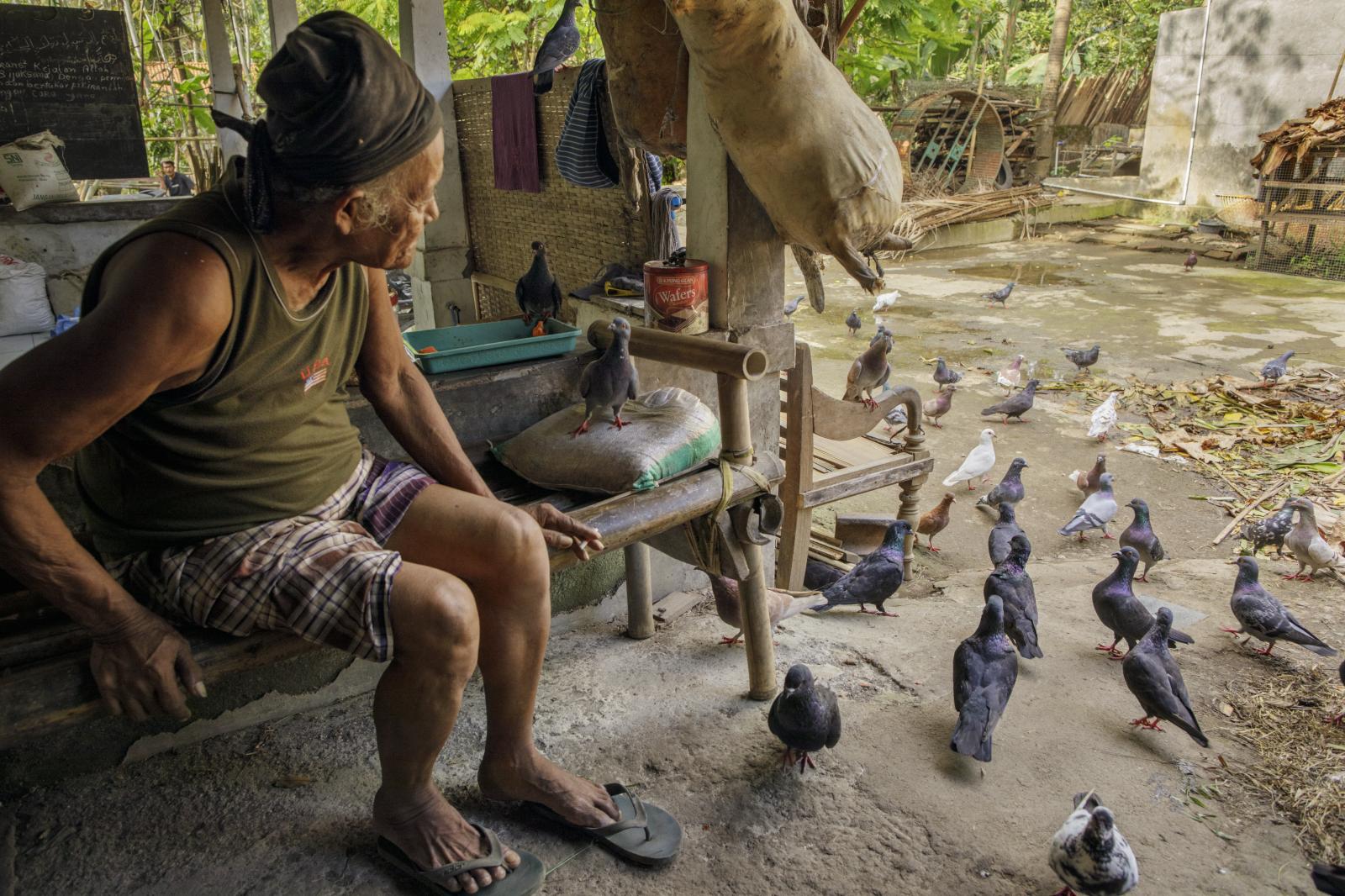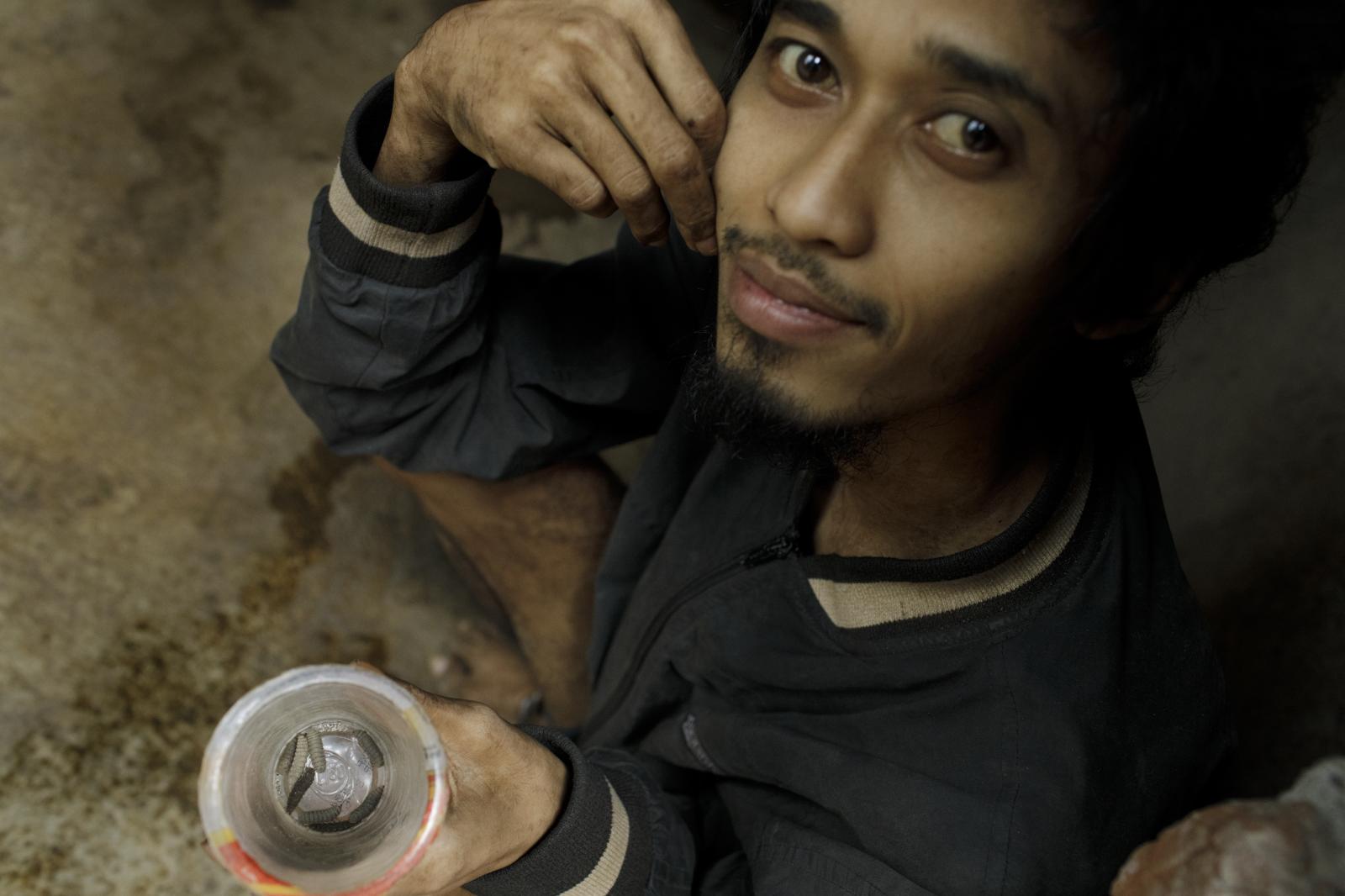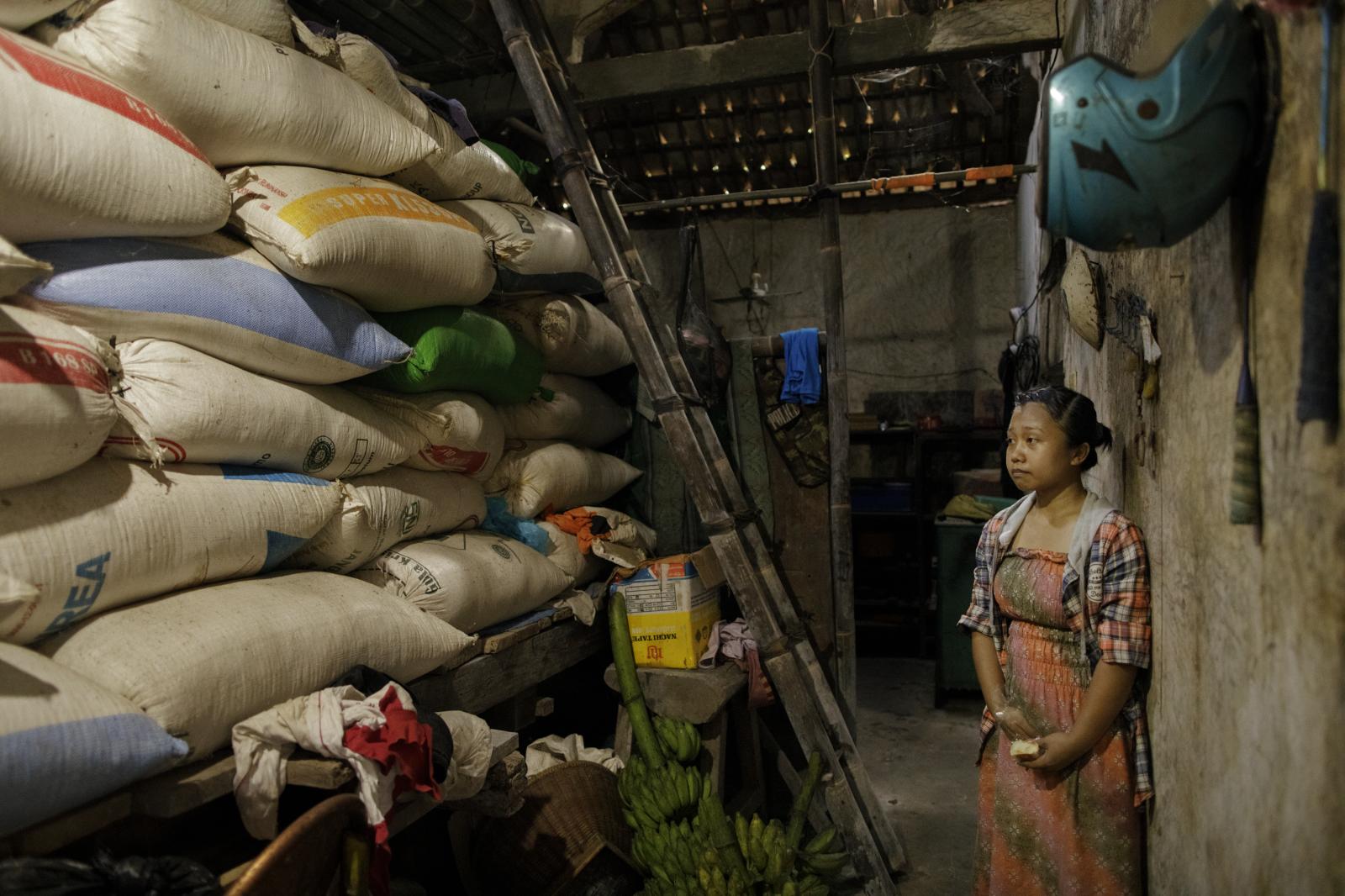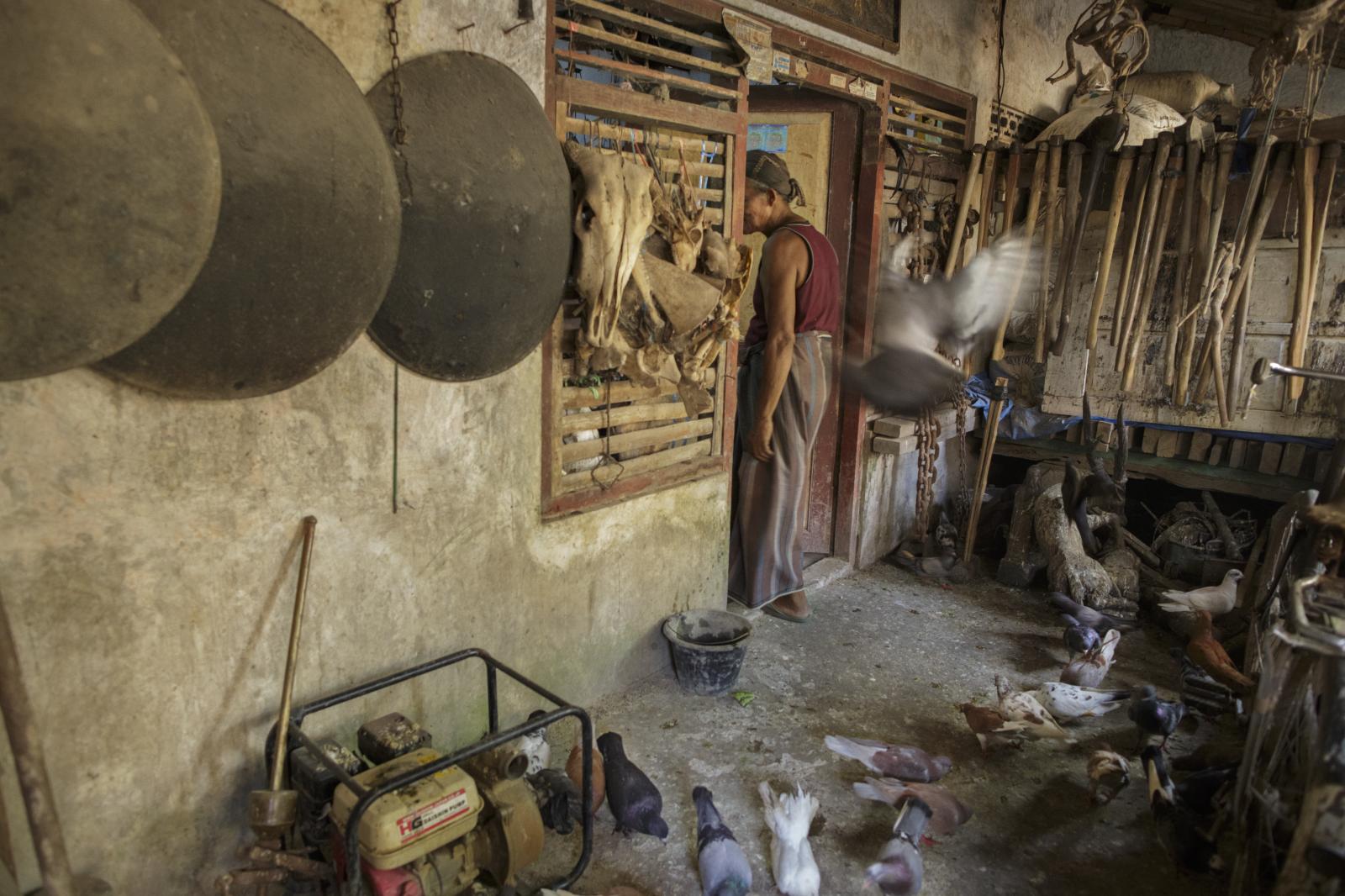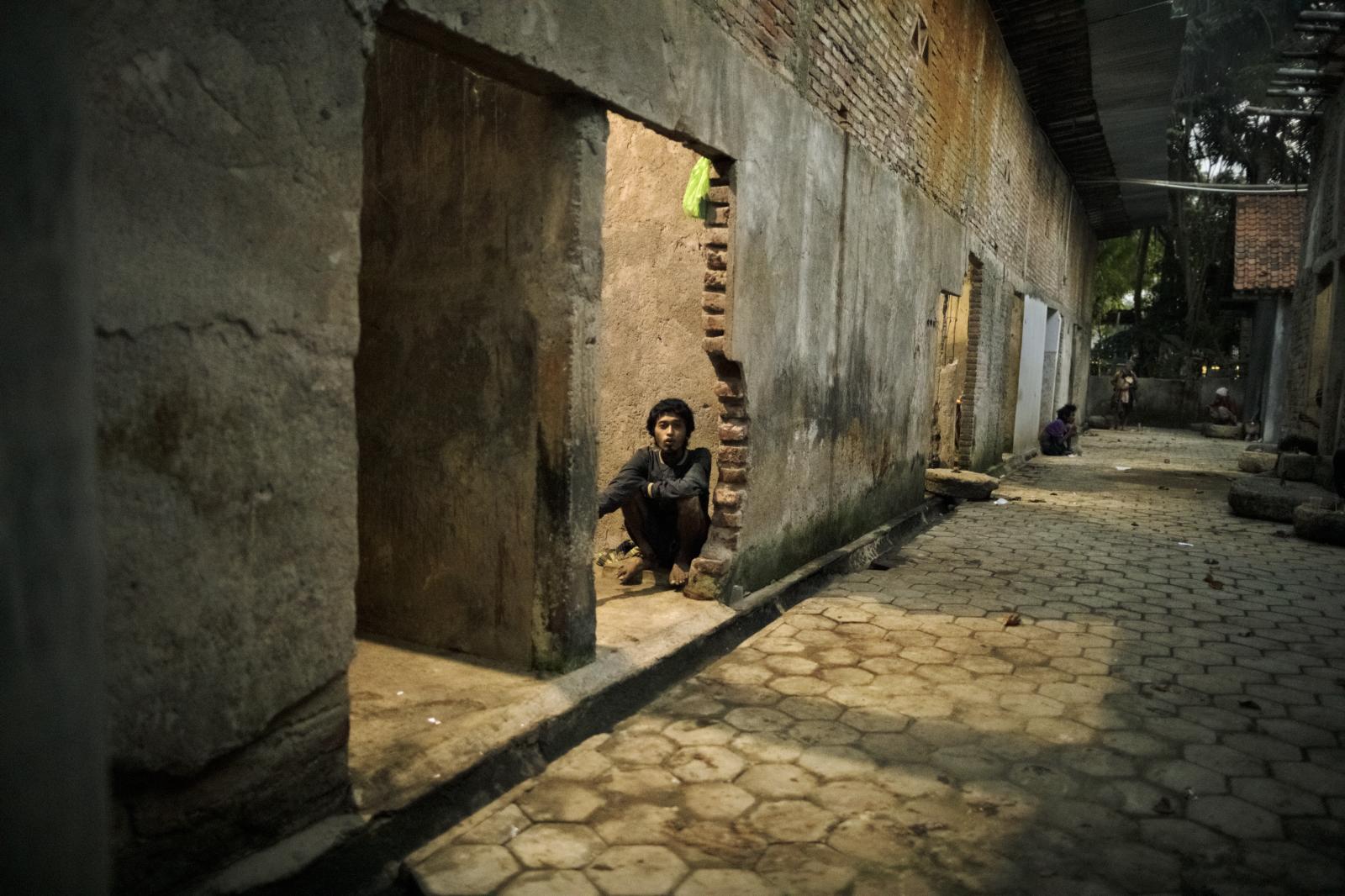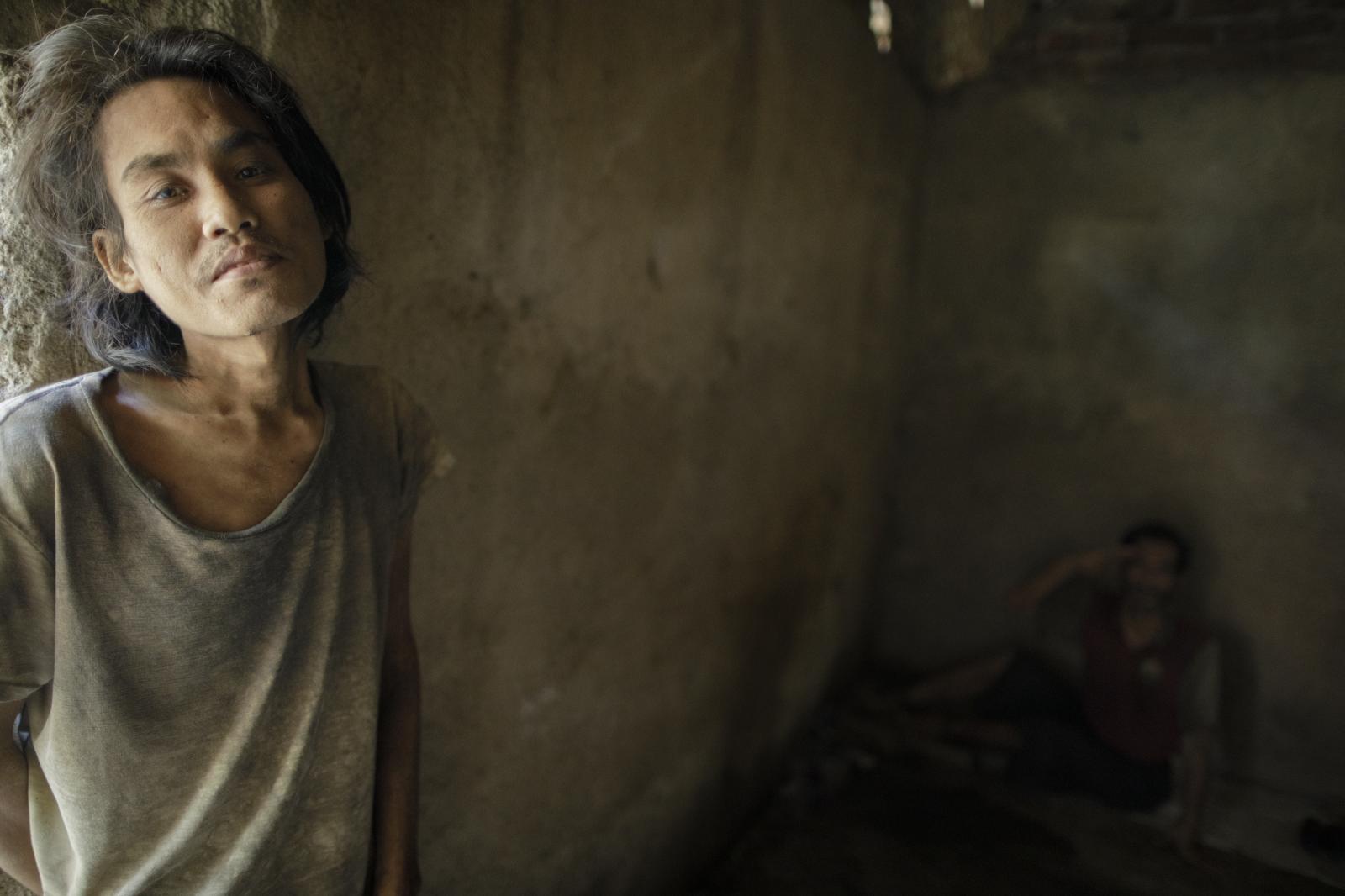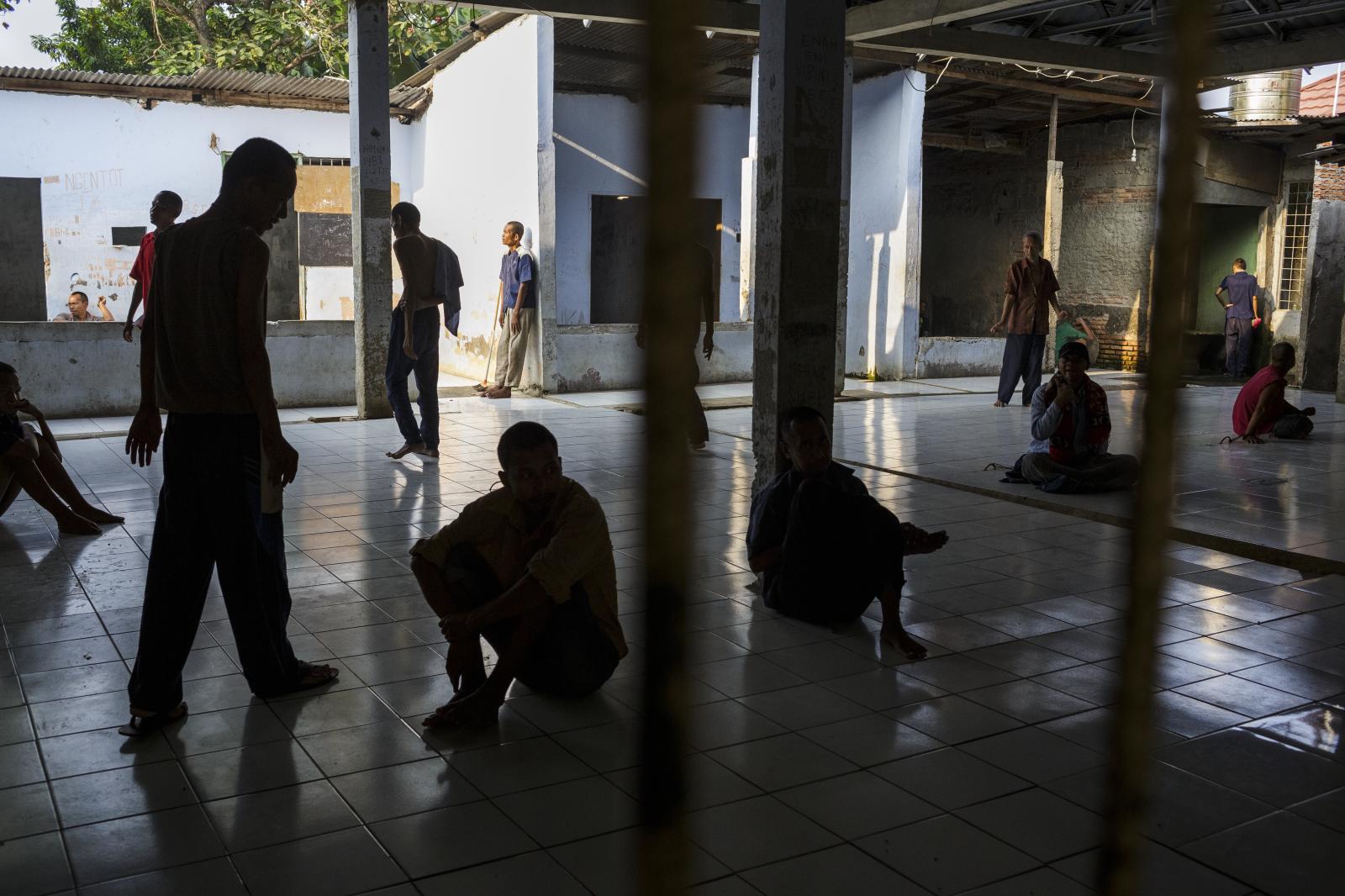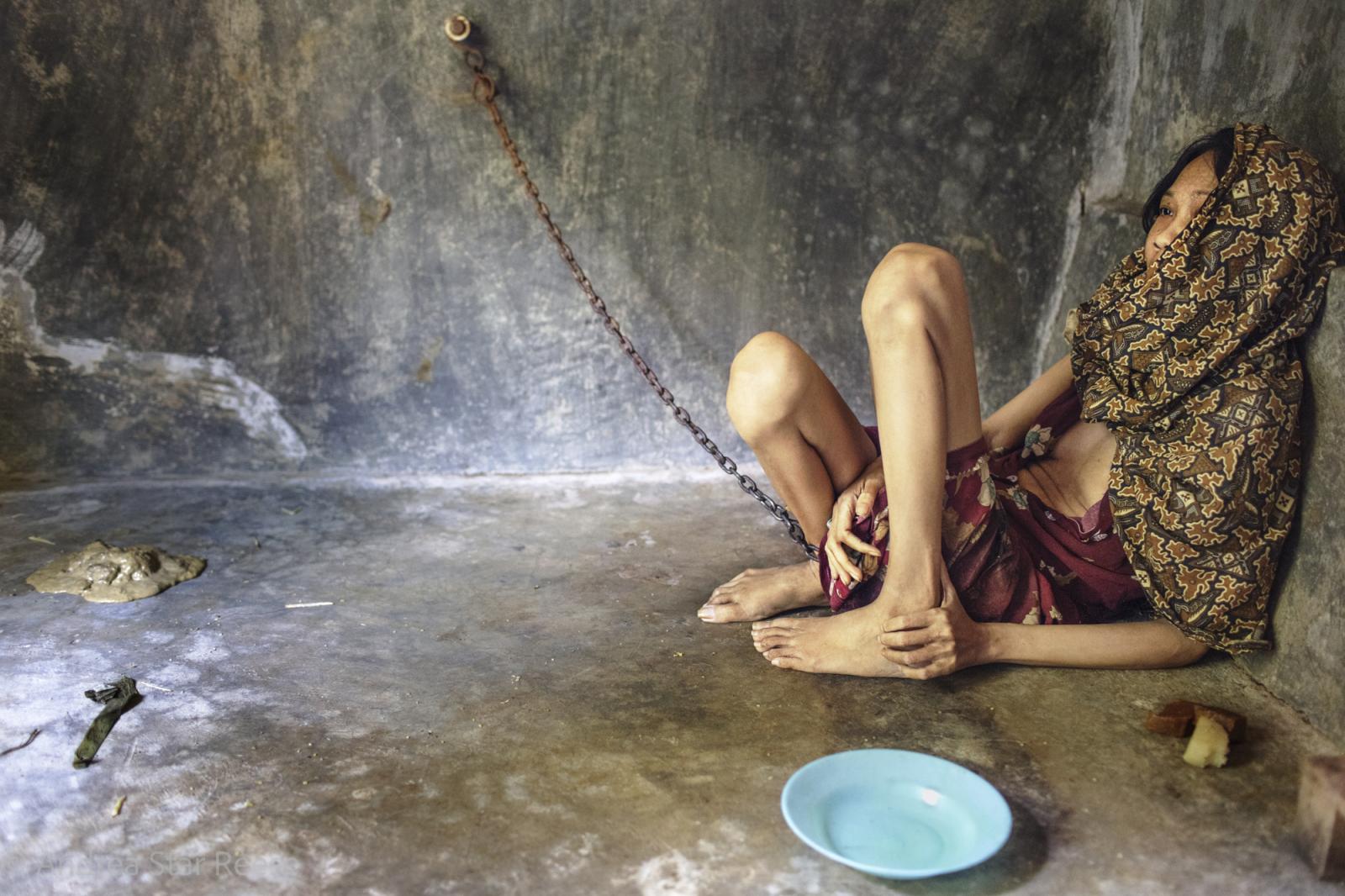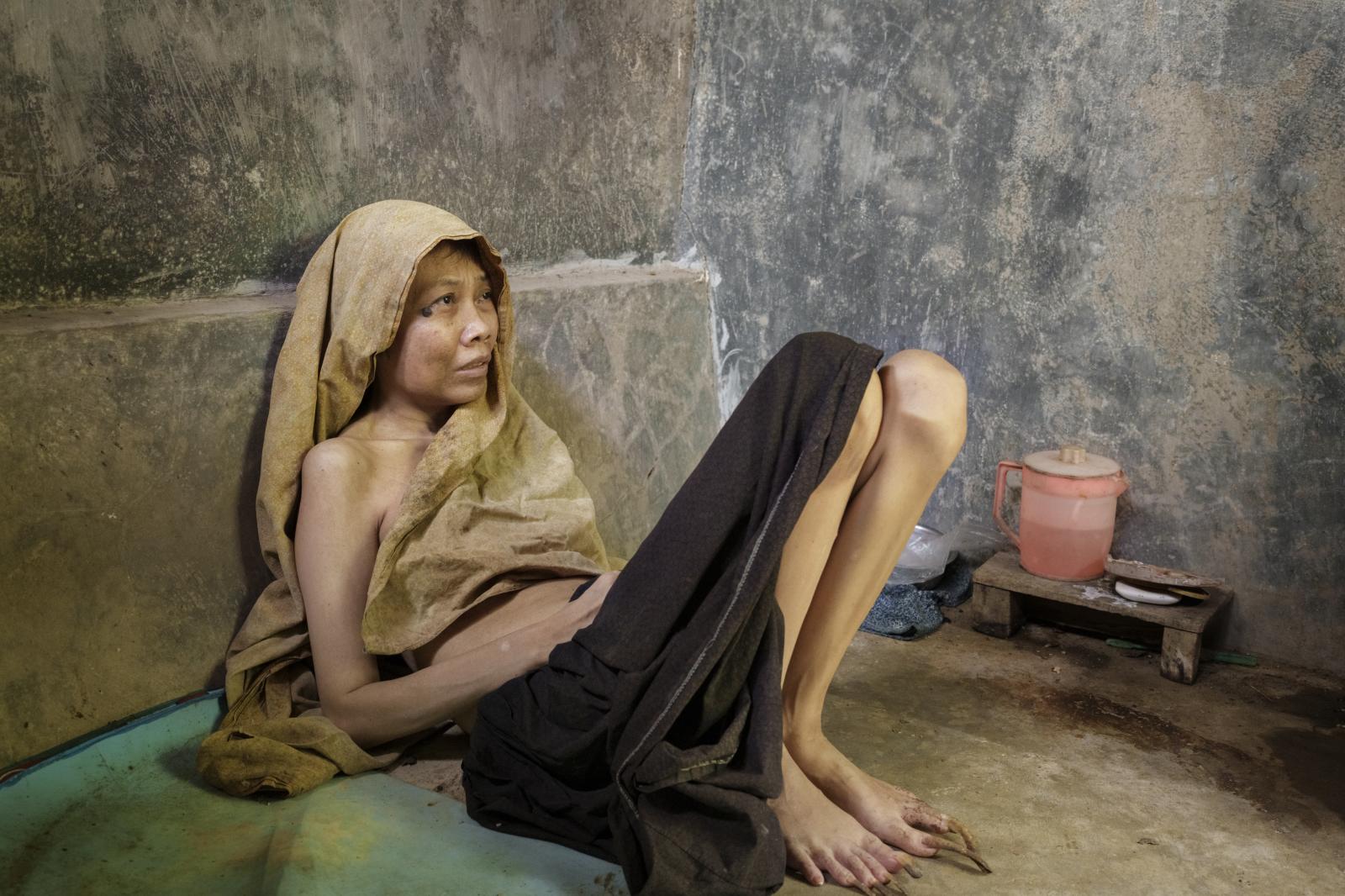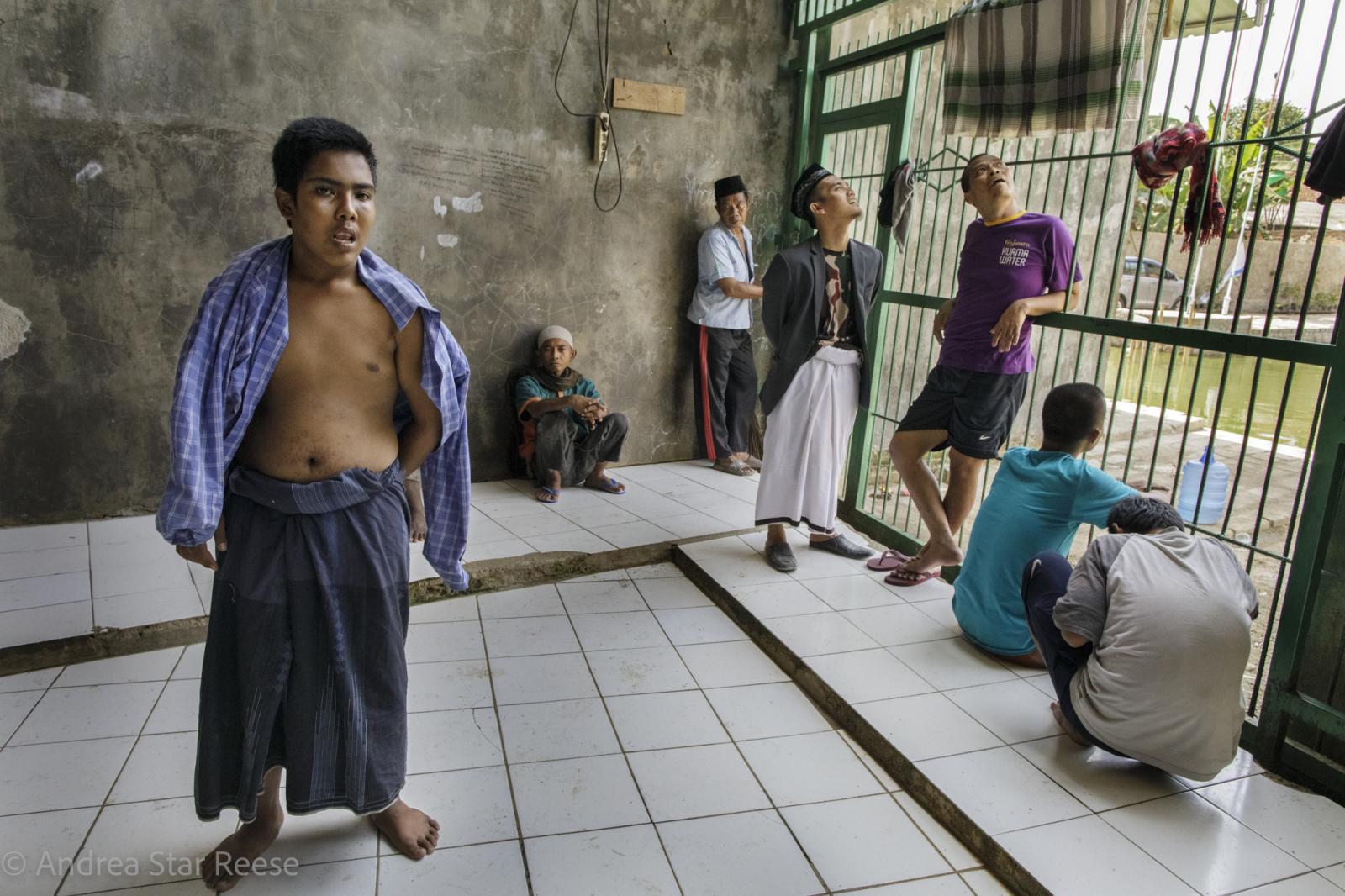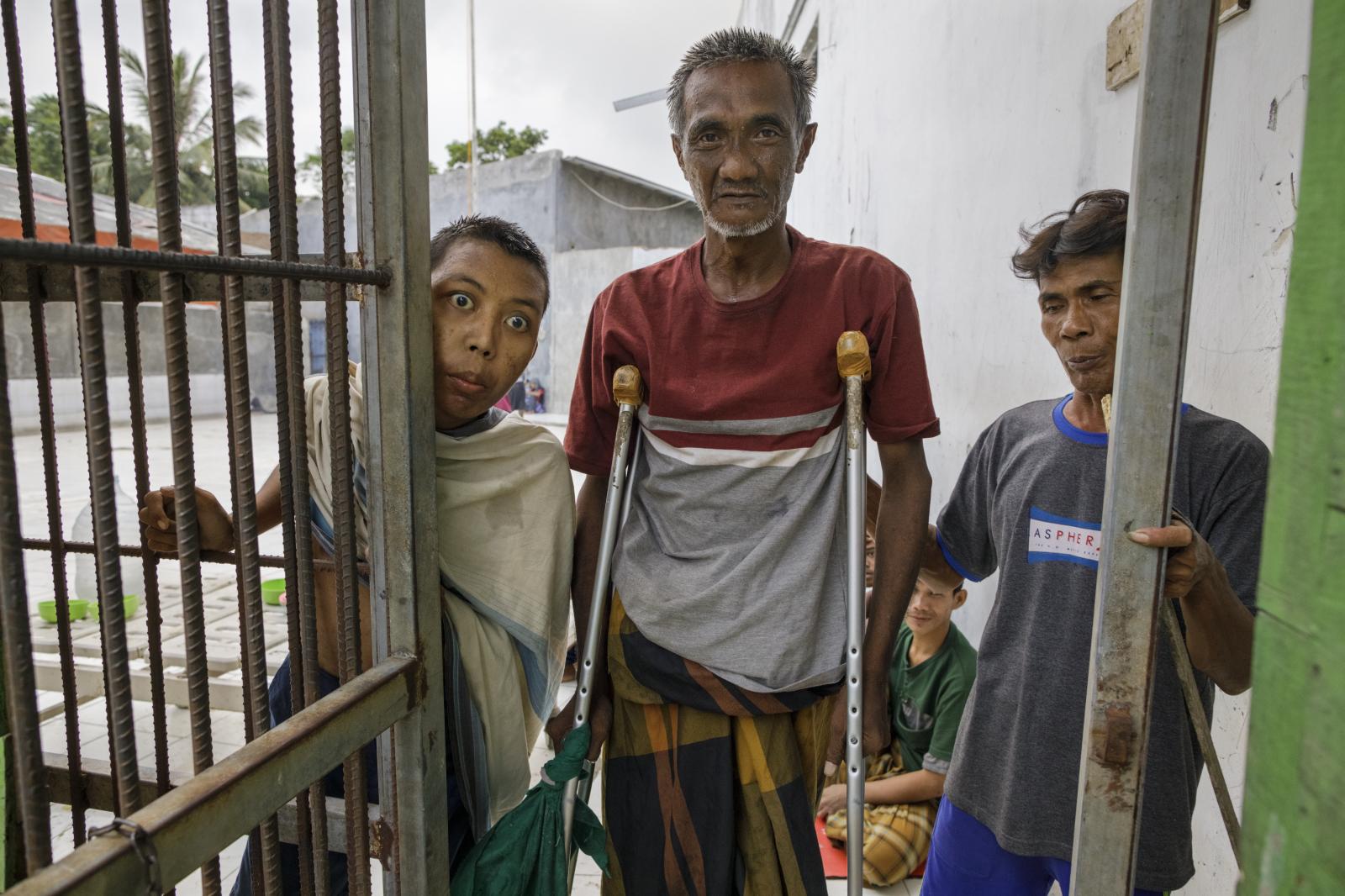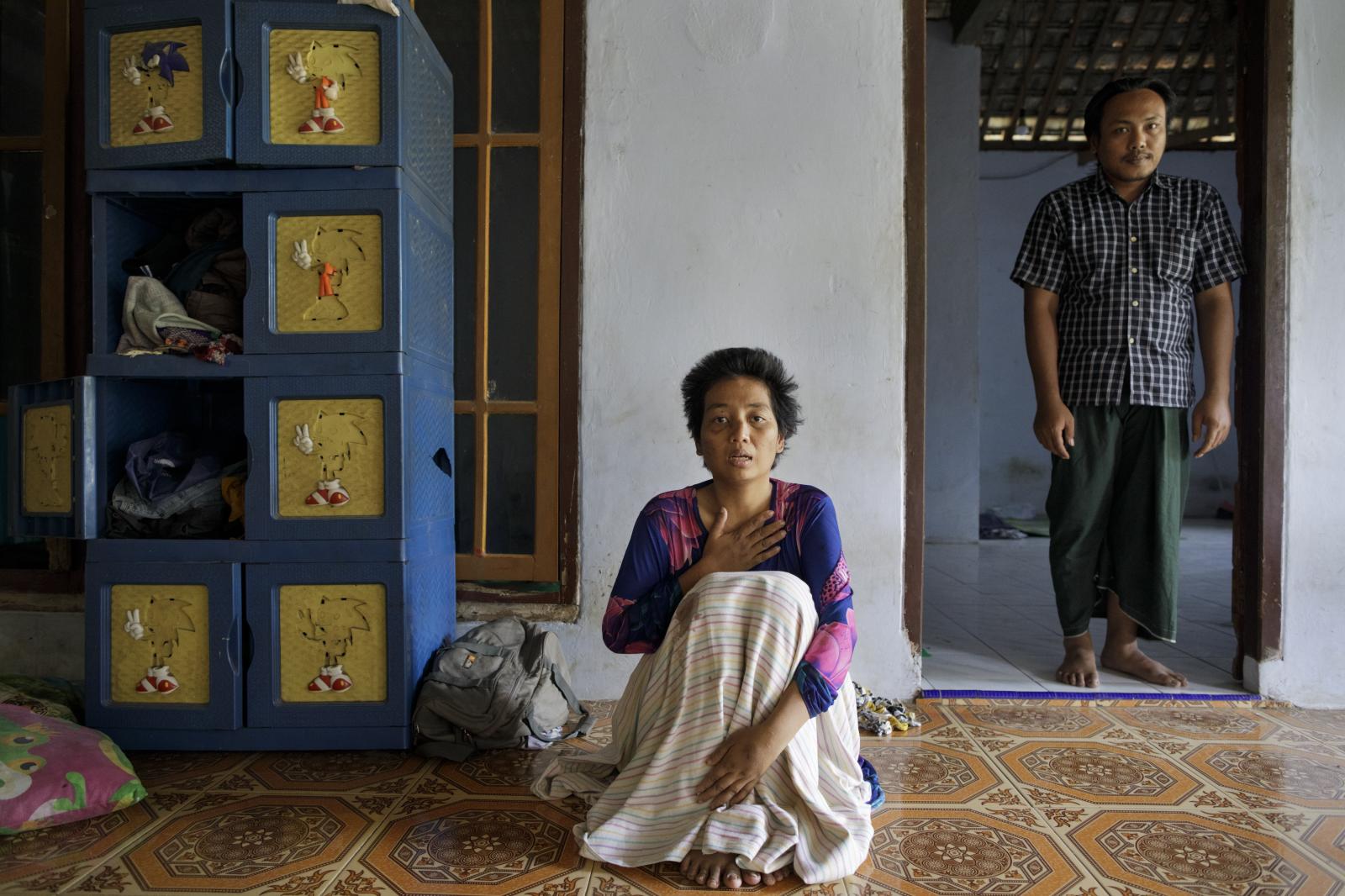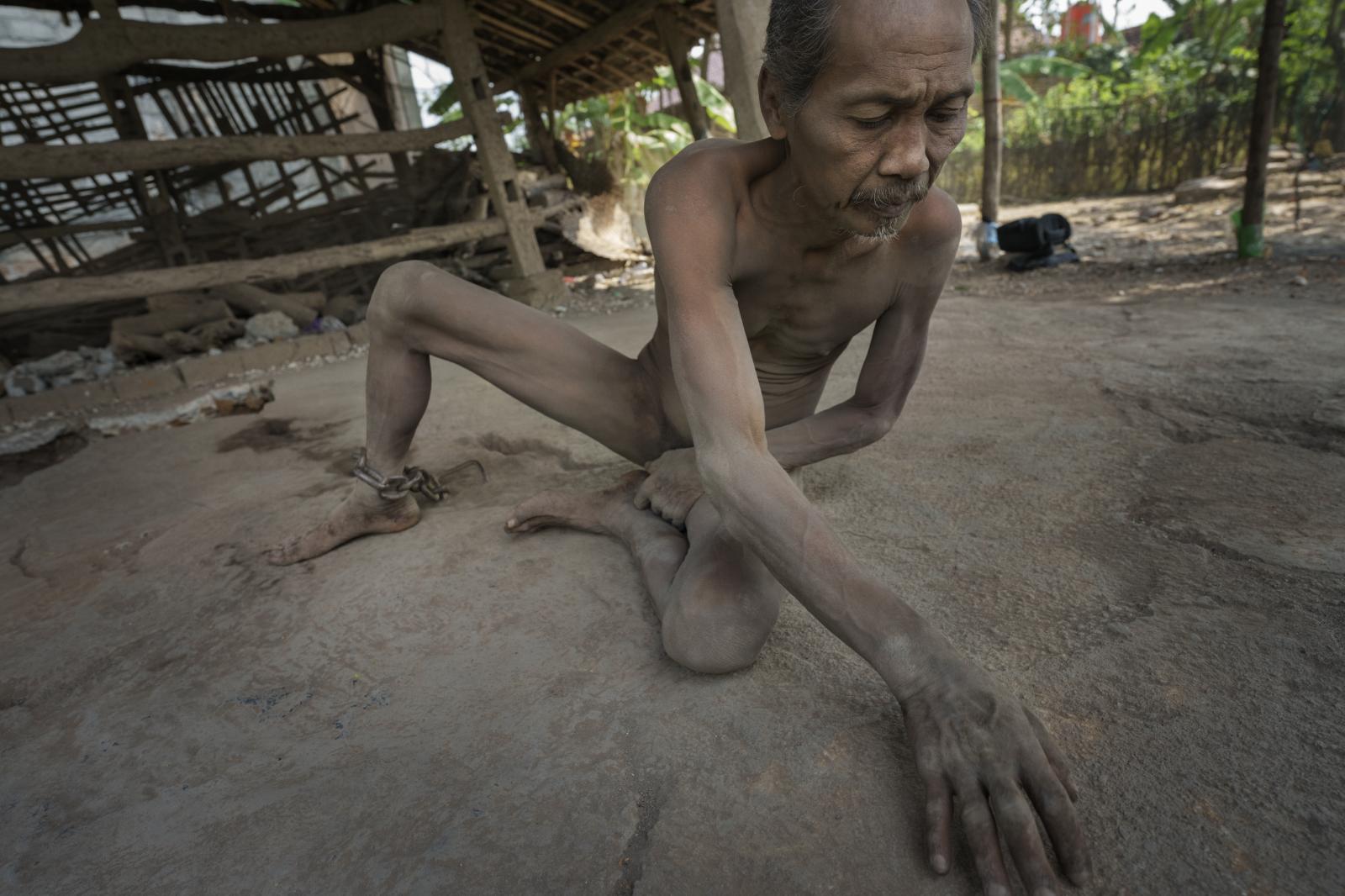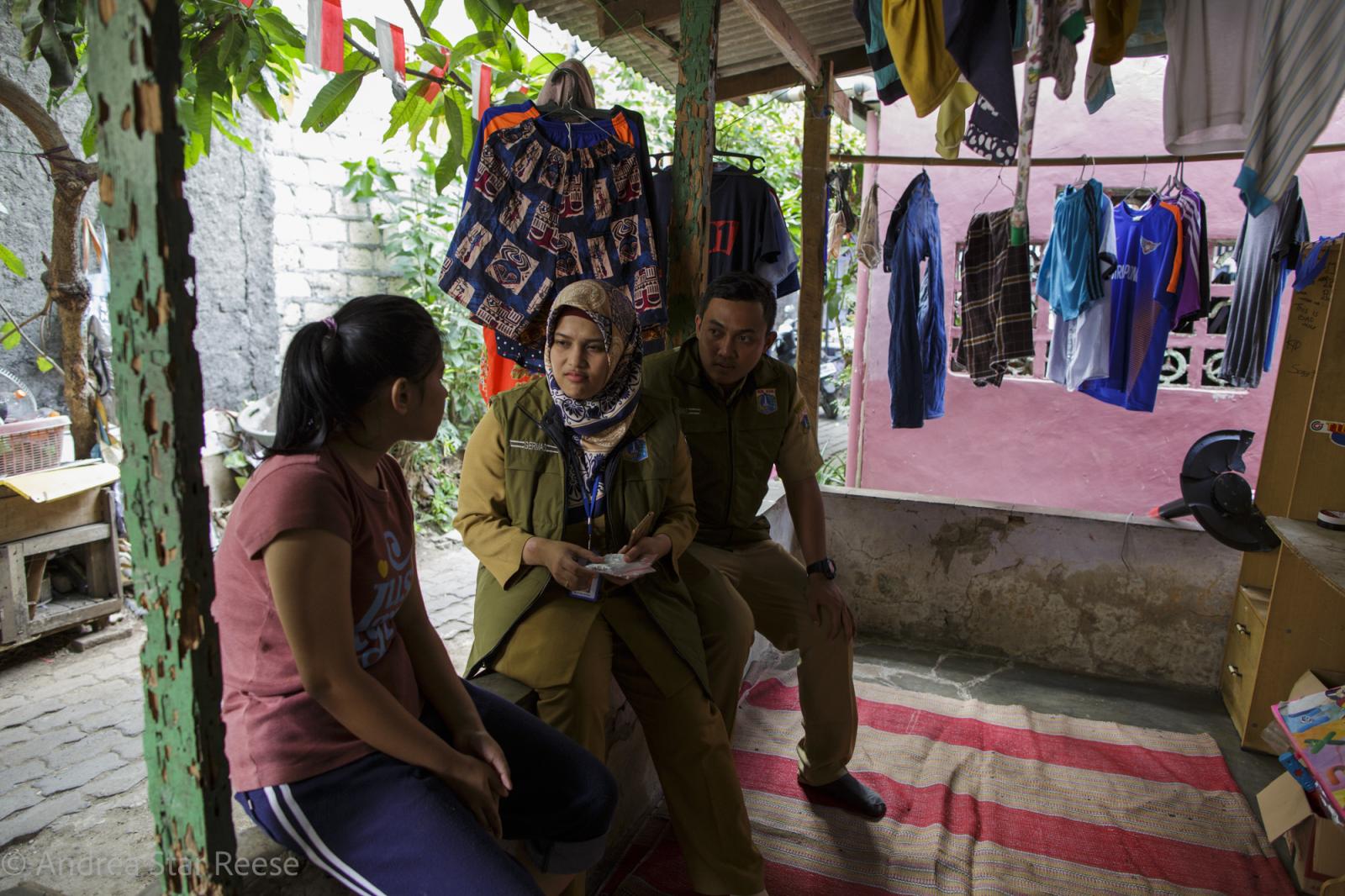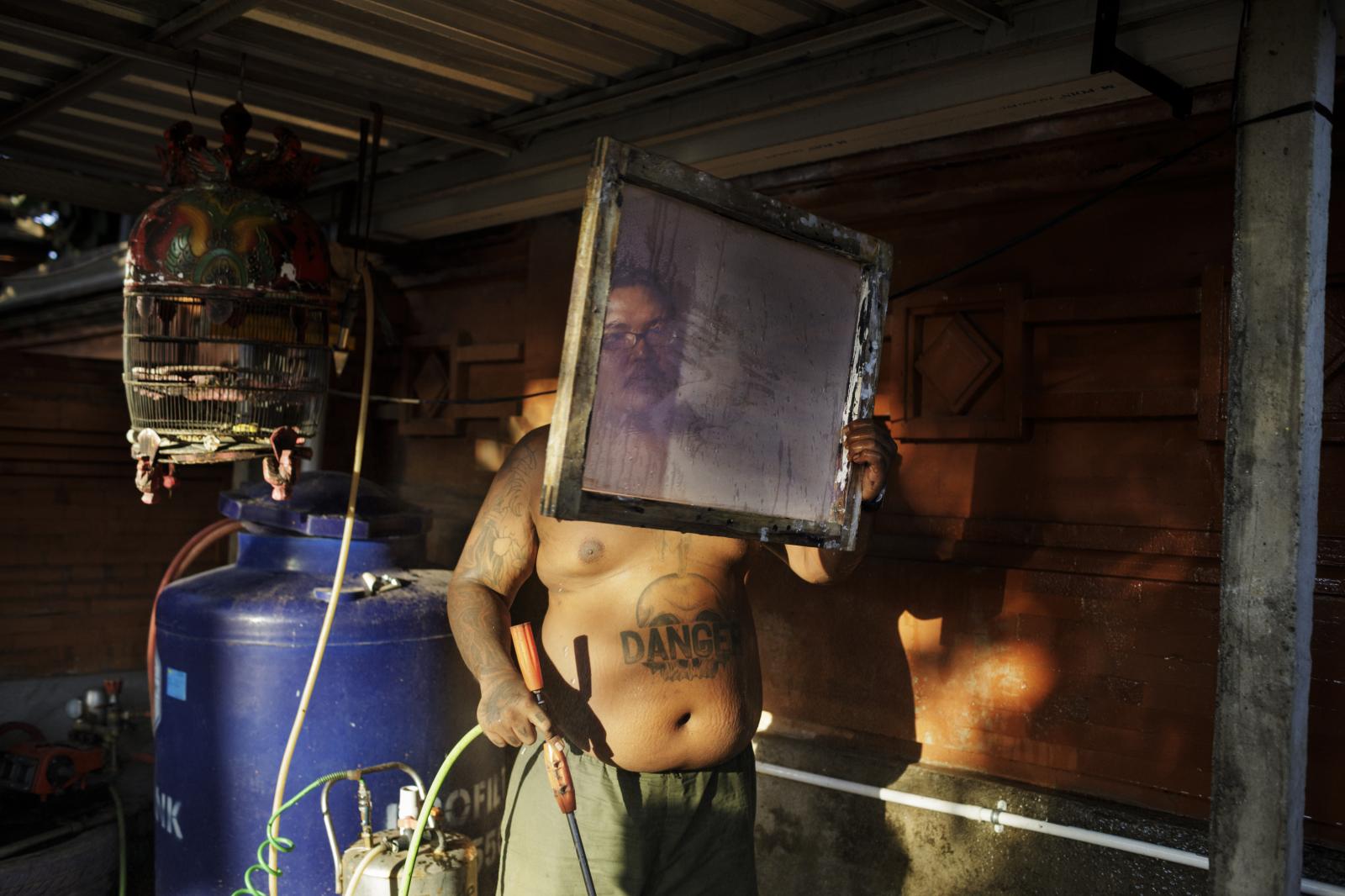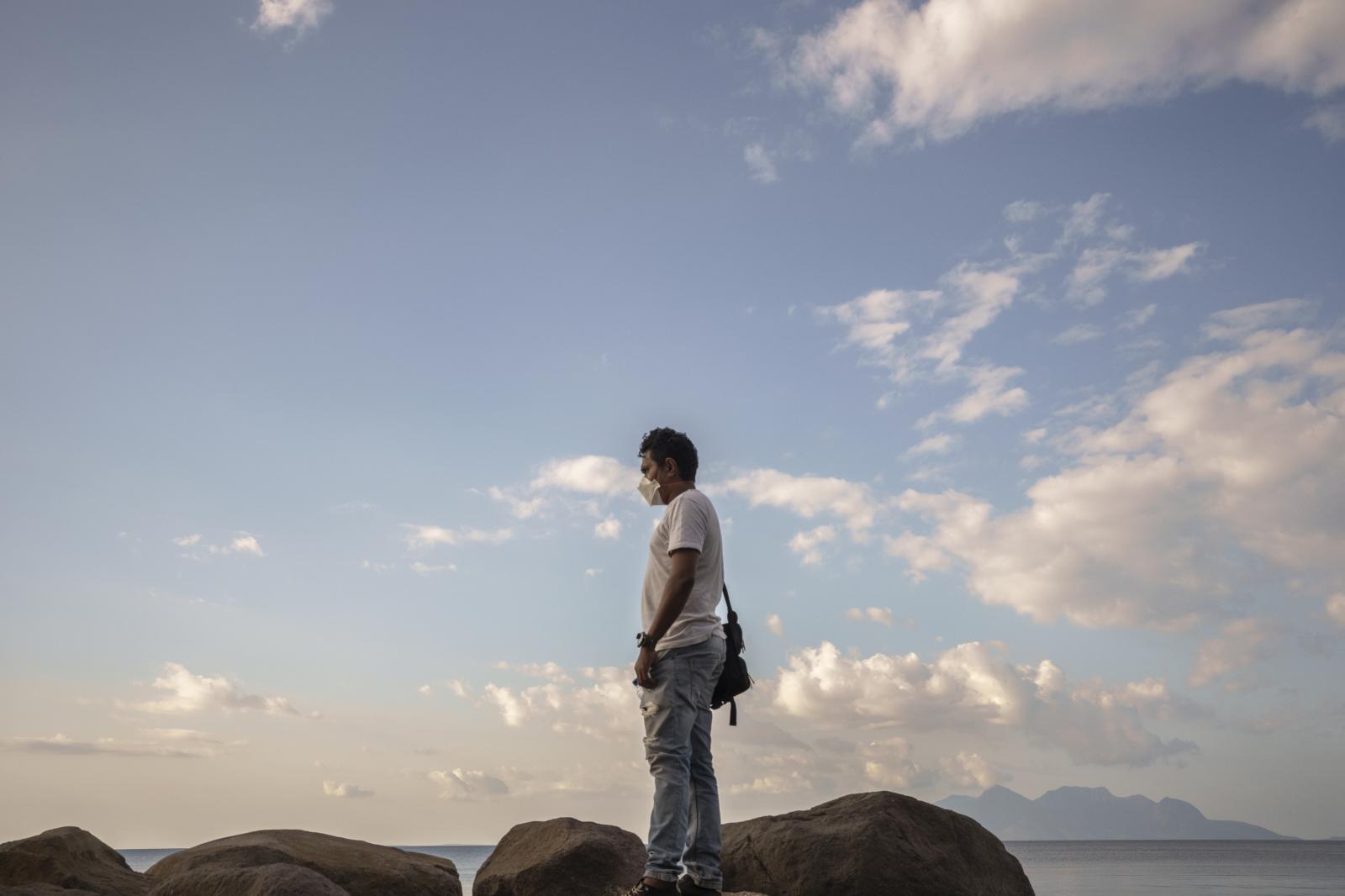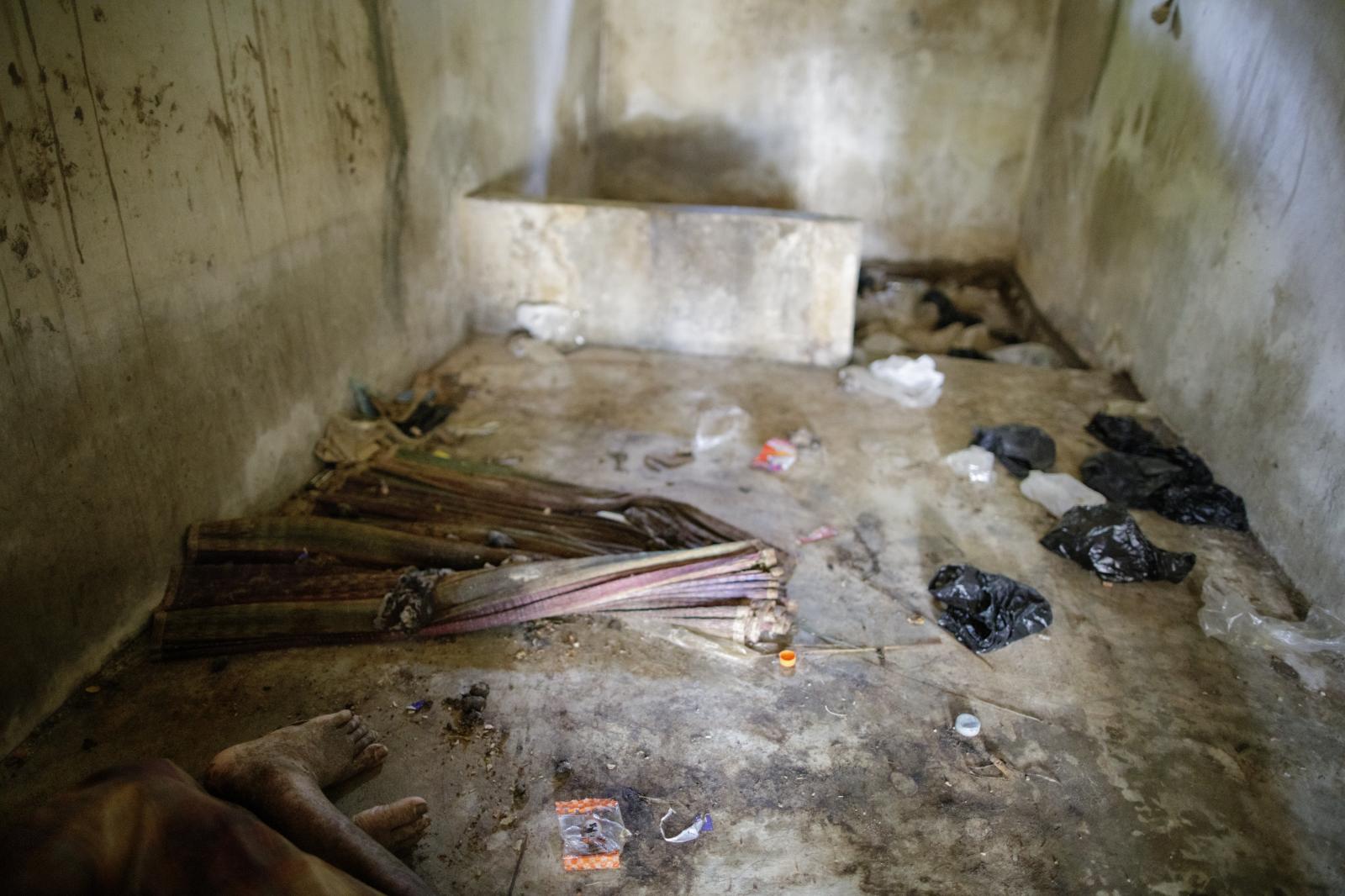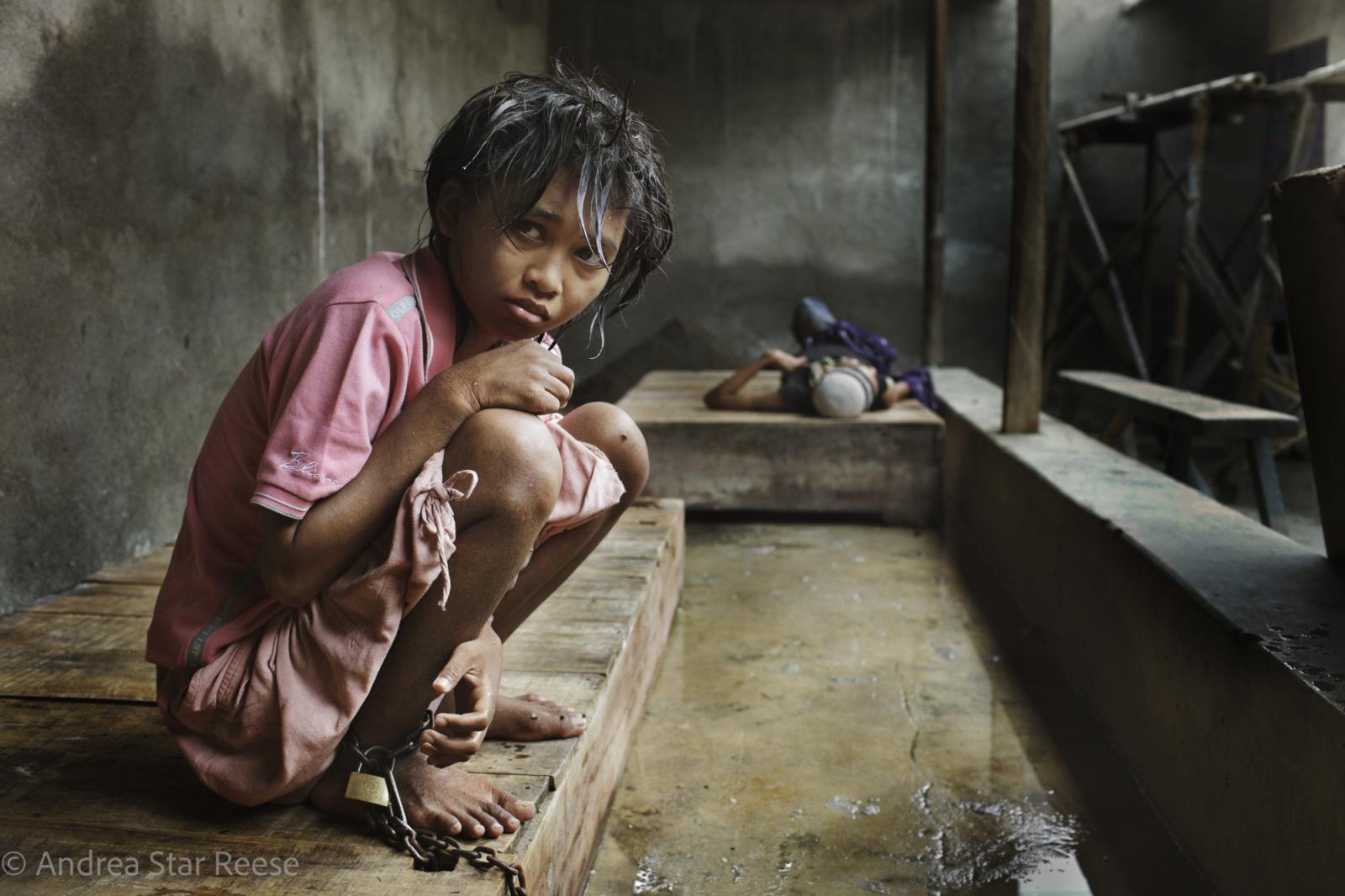DISORDER_2011 and ongoing
The photographs posted on this website are the result of ten years of work on DISORDER, a documentary photo reportage about abuse against people with a real or perceived psychosocial disability in Indonesia and efforts to address Disability Rights and Human Rights:
Since January 14,2011 I have visited and re visited more than 100 government-run and private social care institutions, faith healing centers, psychiatric hospitals and numerous private homes throughout Indonesia. I discover new places, revisit previous places, and plan a focus of special interest.Being a part of the catalyst that will deliver informed choice, a full spectrum of care options, individual enfranchisement and self determination to persons with a mental health condition is my purpose.
My initiative is very simply to operate as a vehicle for factual information. I work on the frontlines of a war against stigma, a struggle for disability rights and human rights. I deliver my dispatches to governments, policy makers, donor agencies, rights organizations, local/international audiences, and ordinary people who have no idea of what is occurring.
Despite long held stigma, men and women allow me to photograph because they want people to know what is happening, and to see what they must tolerate. Their participation is a fight for life and liberation, recognition and respect.
For me, the most important part of this work is not the photography. I report from a neurological battleground. So maybe the critical part of that work is to ask/beg/urge countless men/women/children to survive, to value living, and to hold onto hope amidst the unspeakable evidence of their circumstance while they battle and manage a mental disease that could be successfully treated. I get a few hours to accomplish that armed with respect, focus, attention, bits of conversation, and vital information. Then I leave carrying their message and report what I have discovered.
Thousands of mentally ill people are locked away in rooms, cells, cages, or animal sheds, restrained in chains or wooden stocks. Many are left naked, hungry, with no ability to wash, and vulnerable to malnutrition, assault, and rape. In Indonesia, this form of abusive “treatment” is called pasung. It is often imposed on individuals of any age who exhibit behaviors, attitudes, or emotional expression that are atypical. Pasung can be enforced for weeks, months, or even years. Although pasung has been banned by the government since 1977, it continues to be a traditional response to mental conditions throughout Indonesia. Yeni Rosa Damayanti, head of Perhimpunan Jiwa Sehat-Indonesian Mental Health Association, in Jakarta, (January, 2016) told me, “You can throw a stone anywhere in Java and you will hit someone in pasung. That’s how prevalent it is.” She added “People with a mental health problem are at the bottom of the chain/cycle of violence that results in human rights abuses….the difference between having access to service and no access at all is to be forced to live in hell. It is between living and not living.”
Although pasung still occurs in several institutions and healing centers, it often takes place at home. It is imposed by family members who cannot afford a higher level of care, have no support system, cannot or do not know how to access services, fear medications, worry about addiction, or most significantly, want to avoid the stigma linked to a diagnosis of mental illness. Most commonly, they feel pasung is a necessary step to protect the family, community, as well as the nonconforming individual.
In 2016 Human Rights Watch reported that Indonesia is estimated to have over 19 million people with psychosocial disabilities. Indonesia has about 48 mental health institutions and roughly 700 psychiatrists. More than half of the psychiatric hospitals are in four of the country’s 34 provinces, while eight provinces have no psychiatric hospitals at all. Of Indonesia’s psychiatrists, half are based in Java, and half of them practice in Jakarta. Needed prescriptions can be unavailable for months due to shortages. Patient compliance and lack of family support can also lead to treatment failure. To further complicate efforts for reform the Ministry of Health oversees mental hospitals while shelters for the mentally ill are the responsibility of the Ministry of Social Affairs
Faith healers and traditional healers remain a preferred first choice for care. Most concerning is the continuing belief that one’s perceived atypical behavior stems from a lack of faith or sinful behavior, caused by mysticism, spells, or by possession.
Inadequate access to the medications and treatments commonly available throughout much of the world has devastating consequences. Many people have no idea that their mental condition can improve, they can be better and with opportunity, they can live their dream.
I operate according to Journalism ethics and standard practices under National Press Photographers Association. (NPPA) and International Federation of Journalists (IFJ)
Many of the people I photograph have not been seen by a Mental Health Professional or a Doctor able to diagnose and attribute their perceived symptoms or atypical behaviors as due to a Mental Health Condition or caused by a Physical Disease. Often family members and Caregivers prefer an explantion of possession, mysticism, malicious spells, or stress due to unrequited love, or joblessness.
In 2013 Human Rights Watch contacted me after seeing my photographs which led to an investigation and world wide exposure. On March 21, 2016 Human Rights Watch released their Report: "LIVING IN HELL", followed in 2018 by "INDONESIA: Shackling Reduced But Persists"; and in 2020 by "People with Mental Health Conditions Living in Chains". Along with my Fixer Gunawan, also a video cameraman, I am honored to have worked with him as a team on visual content for these reports.
Iin Purwanti Cox
Researcher/Consultant, formerly with Yayasan Lembaga Bantuan Hakum Indonesia-Indonesia Legal Aid Foundation
Consultants: Yeni Rosa Diamanti,Perhimpunan Jiwa Sehat-Indonesia Mental Health Association; Dr. Pandu Setiawan, Former Head of Directorate General of Mental Health, Department of Health, Jaringan Rehabilitasi Psikososial-Diaabled People’s Association; Dr. Irmansyah, Former Head of Directorate General of Mental Health, Department of Health, Bogor Mental Hospital; Dr. Harvita Diatri, Department of Psychiatry, University of Indonesia, Cipto Hospital; Dr. Yunier Sunarko, RSJ Dr Radjiman Wediodiningrat State Mental Hospital; Bagus Utomo, Ketua Komunitas Peduli Skizofrenia Indonesia; others

